Dealing with Deconversion: THE MALAISE OF FRAGILIZED FAITH
FRUITFUL FAITH IN THE AGE OF DECONVERSION
Ed Hindson THE CHRISTIAN AND THE CRITICAL SPIRIT
Andrew Walker
AN INTERVIEW WITH IVAN MESA

Ivan Mesa and Jack Carson IS APOLOGETICS PART OF THE PROBLEM?
Mark Allen
Fall 2022
Jack Carson, Executive Editor 2022Mark D. Allen, Executive Editor 2018-21
Benjamin Forrest, Managing Editor
Seth Pryor, Assistant to the Managing Editor
Zane Richer, Assistant to the Managing Editor
Joshua Rice, Creative Director Heidi Schieber, Marketing Director
Seth Bingham, Marketing Manager
Victoria Cline, Project Coordinator
Deanna Sattler, Designer
Dave Parker, Senior Writer
FACEBOOK/LibertyUACE | @LibertyUACE | envelope ACE@liberty.edu | location-arrow Liberty.edu/ACE Dealing with Deconversion: The Malaise of Fragilized Faith 7, no. 1 (Fall 2022): A publication of Liberty University Center for Apologetics & Cultural Engagement
9 THE PRESSURES OF DECONSTRUCTION: REFLECTIONS OF A LIBERTY ALUM
Jack Carson
38 DECONVERSION, THE PROBLEM OF SUFFERING, AND THE GOD WHO DEFEATS EVIL Ronnie Campbell

50 DECONVERSION: ARE WE BLAMING THE VICTIM?
Linda Mintle
64 OUR MARRIAGE OF PHILOSOPHY AND EDUCATION
Mike Jones
Laura Jones
FAITH AND THE ACADEMY: ENGAGING THE CULTURE WITH GRACE AND TRUTH i
8 The Passing of a Baton
Mark D. Allen, Professor of Biblical and Theological Studies, John W. Rawlings School of Divinity, Liberty University
9 The Pressures of Deconstruction: Reflections of a Liberty Alum
Jack Carson, Executive Director of the Center for Apologetics & Cultural Engagement, John W. Rawlings School of Divinity, Liberty University
12 Is Apologetics Part of the Problem?
Mark D. Allen, Professor of Biblical Studies, John W. Rawlings School of Divinity, Liberty University
18 The Letter to the Hebrews and Deconversion: The Struggle for Spiritual Maturity or Security
Leo Percer, Professor of New Testament Studies, John W. Rawlings School of Divinity, Liberty University
22 A Refuge for the Deconverted
A. Chadwick Thornhill, Department Chair of Biblical and Theological Studies, John W. Rawlings School of Divinity, Liberty University
26 Conceptualizing the Psychological Dimensions of Deconversion

Keith Lahikainen, Associate Professor of Psychology, School of Behavioral Sciences, Liberty University
30 An Interview with Ivan Mesa
Ivan Mesa, Editorial Director for The Gospel Coalition, Editor of Before You Lose Your Faith: Deconstructing Doubt in the Church
Jack Carson, Executive Director of the Center for Apologetics & Cultural Engagement, John W. Rawlings School of Divinity, Liberty University
34 The Christian and the Critical Spirit

Andrew Walker, Associate Professor of Christian Ethics and Apologetics, The Southern Baptist Theological Seminary
38 Deconversion, the Problem of Suffering, and the God Who Defeats Evil Ronnie Campbell, Associate Professor of Theology, John W. Rawlings School of Divinity, Liberty University
41
“Love God, Love Others”: Ordering the Operations of Affection
Benjamin K. Forrest, Professor of Christian Education and Associate Dean, College of Arts & Sciences, Liberty University
Jason Glen, Instructor of Ethics and Interdisciplinary Studies, College of Arts & Sciences, Liberty University
4
ii
Contents
47 Fruitful Faith in the Age of Deconversion
Ed Hindson, Dean Emeritus and Distinguished Professor of Religion, John W. Rawlings School of Divinity, Liberty University
50 Deconversion: Are We Blaming the Victim?
Linda Mintle, Chair of Behavioral Health at the College of Osteopathic Medicine, Liberty University
55 Faculty Instrumentality for Defending the Faith: Encouragement against the Philosophical and Pragmatic Foundations for “Deconversion”
Bernard J. Mauser, Adjunct Faculty, John W. Rawlings School of Divinity, Liberty University
INTERDISCIPLINARY ESSAYS
60 The Many Forms of Stewardship (and How to Live Them)


Timothy Yonts, Instructor of Ethics, College of Arts & Sciences, Liberty University
Stacie Rhodes, Associate Professor, School of Business, Liberty University
64 Our Marriage of Philosophy and Education
Mike Jones, Professor of Interdisciplinary Studies, College of Arts & Sciences, Liberty University
Laura Jones, Adjunct Professor of Education, School of Education, Liberty University
5
iii
FAITH AND THE ACADEMY: ENGAGING THE CULTURE WITH GRACE AND TRUTH

Training Champions for Christ since 1971
 Editorial Note Mark D. Allen Professor of Biblical and Theological Studies, Executive Editor, Faith and the Academy, 2018-2021
Editorial Note Mark D. Allen Professor of Biblical and Theological Studies, Executive Editor, Faith and the Academy, 2018-2021
 John W. Rawlings School of Divinity, Liberty University
John W. Rawlings School of Divinity, Liberty University
The Passing of a Baton
In high school, I ran the first leg on our 4x100 relay team. Nothing felt better for me than to take the lead, pass the baton off smoothly, and then watch my teammates increase our lead. I learned the importance of a smooth hand off and the joy of watching my teammates succeed.

This summer, I passed the baton of leadership of the Center of Apologetics & Cultural Engagement to Jack Carson. Jack is an able leader who will take the center further than it has ever gone.
As the center’s coordinator, Jack has been the energy behind the center’s structural development and unique vision. For years, Jack has served as the associate editor of Faith and the Academy, and now he takes up the mantle of executive editor of the journal.
Jack is eminently qualified to lead the next leg of ACE and F&A. He is a Ph.D. candidate at the University of Aberdeen in public theology, experienced administrator, and co-author of a book designed to persuade those considering deconversion to remain true to Jesus Christ and His Church. Brazos Press will release the book in the summer of 2023.
The work we have done at ACE and through F&A has been spiritually and professionally satisfying for me. I especially enjoyed mentoring students toward a more intellectually robust, theologically rich, and genuinely kind approach to cultural engagement. Beginning this year, I will teach more Ph.D. and graduate courses in public theology within the School of Divinity and will turn my focus toward writing and research.
Jack, the baton is in your hand. Run the race well, my friend.
Jack Carson Executive Director
Center for Apologetics & Cultural
Engagement
John W. Rawlings School of Divinity, Liberty University
THE PRESSURES OF DECONSTRUCTION: REFLECTIONS OF A LIBERTY ALUM

I started my undergraduate program at Liberty University in 2013. Since then, I have had a number of my friends — young people who attended Liberty for four years — "deconstruct” their faith and ultimately walk away from Christianity. If you have been teaching here for any length of time and have been able to stay in contact with your former students, I am sure you know some names that match the stories below.
At first, this trend toward deconstruction was surprising. My youth group years set me up to believe that Christianity was obviously true — doubt was silly, stupid, or sinful. When I came to Liberty, I stepped into a carefully cultivated community that reinforced belief and exterminated doubt. This was very helpful for me at the time. But it made faith seem easy because everyone around me believed.
Faith, it turns out, isn’t always as easy as I thought. I’d like to introduce you to Kayla, Ashley, and Bill.
Kayla and I were in the same friend group throughout our undergraduate years. We had study sessions together and regularly attended the same dorm-sponsored board game nights. Kayla was an exemplary Christian young woman. She was a resident shepherd who cared deeply about the girls on her hall, and she went out of her way to disciple them and care for them when they were homesick or depressed. She was selfless, kind, and funny. She was regularly mentored and discipled by her own LU Shepherd, and she shared with her friends how the Lord was shaping her and challenging her.
Kayla now identifies as a lesbian and has renounced her faith. She looks back on her time here as repressive and spiritually manipulative. In the traditional Southern Baptist environment both Kayla and I grew up in, people bluntly explained that it is impossible to be Christian and LGBTQ+.
As Kayla tells her story now, she was experiencing same-sex attraction the entire time that she was at Liberty, and she kept praying that God would deliver her from it. She has shown me the journal pages where she prayed week after week to be saved from same-sex attraction. And it never happened for her. She remained attracted to girls and eventually came to accept that since she was attracted to females, she can’t be a Christian anyways. So she gave up and publicly “deconverted.” Christianity just didn’t “fit” Kayla anymore.
Ashley was — like Kayla — a seemingly devoted Christian. She grew up attending a private Christian school, and her entire childhood was steeped in conservative Christianity. Her parents kept her from dating, bought her a purity ring, and sent her off to Liberty University to — presumably — find a nice Christian husband. They didn’t quite get the outcome they hoped for.
As Ashley began to reflect on her childhood, one word began to dominate her memory of it — abusive. Not abusive in a physical or sexual sense, but abusive in a more ineffable way. As she remembers it now, her beliefs had been forced on her, and her freedom of thought had been restricted. At first, she thought that her parents were an anomaly, and she explored other forms of Christianity. She began to find each successive Christian author to be more frustrating for her faith. Each of them seemed so confident in their framing of Christianity, and each of them wanted her to believe exactly what they believed. This seemed quite similar to her parents. Ashley wanted to be a Christian, but the whole structure of Christianity now seemed tainted to her. The whole thing just seemed to be about power. This was exacerbated as she began to see spiritual leaders — the same ones who had publicly taught her to “keep herself pure” — become exposed as incredibly immoral
Pre-Editorial
individuals in their private lives. I tried to tell Ashley that Christianity is broader and richer than she could see at the time. I tried to explain that Christianity helped give the modern world its idea of freedom and provided it with the metaphysical resources to believe in human rights. I tried to show Ashley that the failures of particular Christian leaders don’t necessarily demonstrate the failure of Christianity itself. But for Ashley, Christianity just didn’t seem good anymore.
Bill, like the others, came from a Christian home. Bill, though, had been voicing doubts for a long time before he came to college. It seemed to him that no one had satisfying answers. He was curious about how Christianity fit with modern science. He wanted to know how Christianity explained the data that led so many people to believe in evolution. To answer these questions, he pursued a minor in Christian Apologetics once he got to college. He wanted to solve his doubts, and he was willing to put in the work to make that happen.
And Bill’s search seemed to work. Or, at least, it did at first. He would find a satisfying answer to some issue — say, the criticism of the New Testament account’s reliability — and then he would be certain of his Christian faith for a while. Eventually, however, a new argument challenging Christianity would present itself to Bill in some YouTube video or Reddit thread. This new argument would throw him into another season of doubt, another season of searching. And the cycle would continue. Eventually, it seemed that Bill’s motivation to remain a Christian just began to putter out. It was too much work — there were too many arguments against Christianity. At least for now, Bill has given up on trying to banish those doubts that have plagued him for so long. He has “deconverted” and no longer believes that Christianity is true.
As I have watched these friends and others struggle with their faith, I have become convinced that I was misled. My experience has shown me that serious people can look into Christianity and even grow up in Christian spaces, but end up not believing for reasons that we both understand and should be sympathetic to. Simply piling on more data or providing more prayer sessions doesn’t seem to be the whole solution — Kayla, Ashley, and Bill had plenty of both.
I want to propose a different route for us, here, at Liberty University. I didn’t choose Kayla, Ashley, and
Bill at random — there were many other stories that could be told. These three represent “archetypes” of doubt. Kayla grew to doubt the beauty of Christianity. For her, it seemed to impoverish life of certain joys, namely sexuality. For Ashley, she came to doubt the goodness of Christianity. Christianity seemed to represent something evil and nefarious to her. For Bill, he came to doubt the truth of Christianity. It just didn’t seem to align with the story he was hearing from people outside Christianity.
We won’t be able to stop all our students from “deconverting.” No matter how much time we put into that effort and how well we design our system, some students will walk away.
But if we take their doubts seriously while they are here — if we treat them with dignity even when they doubt the beauty, goodness, or truth of Christianity — maybe more of them will be willing to open up while they are here. Maybe we can keep them from walking through the pressures of doubt alone after leaving Liberty. And maybe, just maybe, if they feel like the faculty of Liberty University care about them enough to listen to their doubts, they might be more inclined to come home after they find that the world outside of Christianity isn’t all it promises to be. It isn’t more beautiful, good, or true.
I doubt that the prodigal son would have run home if he didn’t believe — somewhere deep in his heart — that his father would still treat him with dignity, despite his many failures.
The articles contained in this journal represent a range of reflections on the phenomenon of deconversion, and we have done our best to allow different voices to contribute unique thoughts. They do not all take the same approach, and the editors would not agree with all the reflections contained within. We think this is healthy.
Ultimately, we hope that each article in this issue will help you reflect on ways to be a figure of love for the students who will hopefully become that prodigal.
1 To protect the privacy of my friends, I have provided pseudonyms and mildly adjusted some of the superfluous details of the stories I record here.
2 The following two stories contain material adapted from a forthcoming book: Joshua D. Chatraw and Jack Carson, Surprised by Doubt (Brazos Press: Grand Rapids, 2023).
10

NEXT GEN Apologetics Conference “Beauty, Narrative, and Spiritual Formation” with Taylor Worley and Eunice Chung. EIGHTH ANNUAL Visit LIBERTY.EDU/ACE for more details. In partnership with the Center for Apologetics & Cultural Engagement and the Center for Youth Ministries. NOV. 7-8, 2022
Mark D. Allen Professor of Biblical and Theological Studies, Executive Editor, Faith and the Academy, 2018-2021 John W. Rawlings School of Divinity, Liberty University

IS APOLOGETICS PART OF THE PROBLEM?
Public deconversion1 stories have become a thing over the past several years. Well-known pastors, contemporary Christian music artists, and other public Christians are leaving the faith in an “out loud” manner. Perhaps closer to home, children and grandchildren give up believing and say so. Christian day school and college graduates give “testimony” to how they came not to believe in Jesus Christ anymore. They have walked the Romans Road, only this time they traveled back down that rocky road toward unbelief. Many of these coming of age stories include gut-wrenching accounts of how, both intellectually and morally, the Christian faith seemed no longer sustainable. Christianity appeared neither true nor good any longer.
Perhaps no deconversion stories are so raw, honest, and thoughtfully articulated as those of Rhett2 and Link,3 the lifelong friends, Bible-belt, “born again” Christians, former CRU staffers at North Carolina State, and now, cohosts of the YouTube series Good Mythical Morning and the podcast Ear Biscuits. The two are very relatable, likeable, intelligent, and engaging comedians who draw listeners in through their funny and interesting takes on everyday life. Their popularity and net worth have soared. At the time I am writing this editorial, Rhett’s deconversion story has been viewed over 1 million times and Link’s account of his own journey away from the Christian faith has been watched over 700,000 times.
If we listen closely to their testimonies of deconversion, we will pick up on the startling issue that, especially for Rhett, apologists were part of the problem. He turned to Christian apologists — the names of whom we would all recognize — for help, but they proved ineffective to shore up his faith. For them, skeptical and critical arguments were more persuasive and believable and — in the end — seemed more honest. At one point, Rhett even became angry at Christian apologists whom he felt deceived him.
We could write them off as a couple of Southern boys with a shallow faith who made it big in California and
then found convenient reasons to walk away from Jesus Christ and His Church. We could claim that they did this because they wanted to be free to indulge their egos and enjoy the benefits of money and popularity. Granted our social location can shape the way we see the world and the things we value. But if we listen closely and empathetically to their stories, there’s more to it than that. Their faith started to unravel even before they left North Carolina and landed in California.
Why? Philosopher Charles Taylor acknowledges in his Templeton Prize-winning book, A Secular Age, that we live in an age in which belief has been “fragilized.”4 The cross-pressures that 21st century people feel due to the multiplicity of spiritual and livable options has overwhelmed us to the point that wherever we stand seems insubstantial and unstable. Today, technology has made us very vulnerable to challenges to our faith and opened us up to the reality of other viable options. Good and smart people are inhabiting the world in an ever increasing variety of ways. And social media makes us an audience to all of it. Now, when we believe in something, we are haunted by a sense of the contestability of our faith. (Yet, the opposite is also true: when we do not believe, we are haunted by the presence and possibilities of the transcendent. Unbelief is fragilized as well. This opens a door for apologetics.) The point is, in the 21st century, Christianity is not the natural default position that it was in AD 1500. Then, it felt almost impossible not to believe. Today, it feels almost impossible to believe. We exist in a malaise of fragilized faith. Maintaining our faith in such a skeptical world with so many life options is overwhelmingly challenging. Rhett, Link, and others began to feel the fragility of their faith even while in North Carolina and — so far — have found it impossible to remain true to what they once believed.
A question remains: why couldn’t traditional apologetics serve people like Rhett and Link? Or perhaps better, is apologetics a part of the problem in many deconversion stories?
12
Editorial
If you expect me to say in general that apologetics is not part of the problem, you’re right. For goodness sake, I co-authored a recent textbook on apologetics, and, along with Josh Chatraw, I am presently writing another book on apologetics. I am not about to deconvert from apologetics. Yet, I have to admit that a certain kind of apologetics might be part of the problem. This insufficient approach did not stop us from getting here and probably won’t get us out.
When is apologetics unhelpful for those considering deconversion? Apologetics is a part of the problem when:
1. It promises absolute certainty.
When apologists claim, “We can prove that God exists,” they have overreached and set the Christian faith up to fail. It’s not surprising that when we claim such high levels of certainty that believers jump ship into the waters of agnostic uncertainty. Further, an apologist with a lack of epistemic humility is offputting and borders on the dishonest. Of course, as missionary Lesslie Newbigin and others have argued, we can have a “proper confidence.”5 Today, a certain kind of Christian certainty, properly defined, always contains an element of volitional intentionality in the midst of other viable options and haunting doubt.
2. It thinks that it is using “universal logic.”
Often what comes across as pure rationalism is actually the quick wittedness, persuasive powers, and assertive personality of the apologist. But, in truth, there is no view from anywhere, no purely objective, rationally coercive line of reasoning that will inevitably end up at the undeniable conclusion that Christianity is true.6 You know an apologist has gone too far when he or she brashly states or, even, subtly implies, “Any intelligent person would see that Christianity is right; to think otherwise is just plain dumb.”
3. It depends too much on cognitive arguments.
When an apologetic approach focuses almost exclusively on the mind without giving adequate attention to a person’s cultural embeddness or his or her human affections, it has sacrificed a mode of reasoning that has the power to make sense to the whole person. As Blaise Pascal has said, “We know the truth not only by means of the reason but also by means of the heart,”7 and, most famously, “The heart has its reasons which reason itself does not know.”8
4. It believes it has a “silver bullet” argument
Whether it is evidence for the resurrection of Jesus Christ or 5 ways to demonstrate God exists, apologetics fails when it has a one-size-fits-all argument. Those who use these arguments most effectively consider cultural factors, are aware of the problem of doubt, and show sensitivity to the experiences and perspectives they are talking with. The best arguments are person-centered, tailored to the realities of the human sitting across from us. The knockout punch arguments may rally the already convinced or make for clickbait on social media, but used simplistically they are rarely effective in persuading a straying sheep to return to the fold.
Apologetic methodologies which were developed out of and in response to modernity truly have some very important contributions to make in late modernity. Obviously, evidential and classical apologetics, which emphasize material proof and logical analysis, have huge upsides to strengthen faith and inspire confidence in the legitimacy and cogency of belief. Just for good measure, add to the mix the incredible gains in moral arguments for Christianity developed in the last several centuries. These are significant apologetic advances. Yet we need to reimagine their usefulness and their place in the midst of the epochal change from modernity to late modernity. Apologetic methodologies9 that were developed out of enlightenment rationalistic and empiricistic epistemologies must be chastened, reshaped, and recontextualized in order to help those late moderns who are considering walking away from the faith. Many of them are deconverting in spite of what we would perceive as insurmountable evidence and irrefutable arguments.
Here’s the kicker. Many Christians who were raised on these modern apologetic methodologies — having learned them in Sunday school, youth group, and college ministry — are walking away from the faith based on what? Based on what they perceive as better evidence, logic, and morality! What?!
So, is apologetics part of the problem? Yes and no. But mostly no. Apologetic gains that emerged from modernity are to a great extent still relevant in late modernity. Indeed, apologetics may be an answer to the problem. I would suggest that a reimagined apologetic would begin with a shift from being primarily philosophical to being more pastoral. Perhaps there also needs to be a shift from the academy to the church. This project may start with a person-focused approach, which will involve an apologetic that views
13 FAITH AND THE ACADEMY: ENGAGING THE CULTURE WITH GRACE AND TRUTH
people differently than it had before. A reimagined apologetic aimed at preventing deconversions in late modernity might start with viewing people as holistic, social, and storied beings. These three frameworks might help us rethink how we do apologetics for those who are thinking about walking away from the faith.

First, people are holistic beings. As James K.A. Smith says, people are not just brains on a stick.10 Humans are not simply Spock-like, hollow people with brains. No, we are not just thinking beings, but we are also desiring beings. We are embodied beings who think with our whole selves, our deepest affections. More often than our thinking determining what we want, what we want determines what and how we think.11 And this is not all bad. Yes, in a fallen world, we have twisted desires and malformed longings, but these are perversions of the truest and best desires that we were born with. As humans in our truest selves, we desire most to love God and love other people in God. Pursuing these desires will make us most happy. As Augustine said in his grand and mature apologetic work, The City of God, “In view of everyone who is at all capable of using reason, it is a certainty that all people want to be happy.”12
Appealing simply to rationalist truth claims will not be the apologetic that works most effectively with real humans today. Instead, we must show those who are tempted to walk away from the faith that the best way to human flourishing and the most authentic way to the good life is through Jesus Christ. No, we are not
saying the best way to get rich or famous is through faith in Jesus, but the way to true happiness and real love is through bending our loves toward what we really want, and what we really want is God’s love. While we are attempting to convince someone intellectually that Jesus Christ rose from the dead, shouldn’t we also connect the resurrection to our human fear of dying and our shared longing for a meaningful life of giving and receiving love? As we are trying to demonstrate rationally that God created the world, shouldn’t we also show how creation is a means God uses to enchant us with a greater vision of His good grace and inspire us to an irrepressible desire to press into His beautiful presence? Perhaps a reimagined apologetic today would begin with a biblical anthropology that will not separate the heart and the mind.
Second, people are social beings. People are embedded in cultures. A dis-enculturated person does not exist. Every person who has ever lived thinks within and responds to the world in which they were formed and are being formed. Individuals have been socialized to feel in their core what is a life lived well and what is a life lived poorly, what it means to succeed and what it means to fail, who is a hero and who is an antihero, what is plausible and what is implausible.13 Charles Taylor has made us more aware that very few, if any, humans actually think in intellectualized frameworks carefully worked out into cognitive conceptions of the world. Instead, he posits that ordinary people “‘imagine’ their social surroundings, and this is not
14
often expressed in theoretical terms — it is carried in images, stories, legends, etc.”14 Thus, we conceive of the world in “social imaginaries.” Normal people do not think in terms of syllogisms and logical proofs; they imagine their worlds through living in certain cultural locations. They develop a “feel” for what is right and what is wrong, what can be believed and what is beyond belief, what makes sense and what is irrational.
Today, these social imaginaries are ever shifting and overlapping. This calls for an apologetic that begins by being with and listening to the other. It invites an apologetic that hears before it tells, that understands before it explains. Prebaked and canned apologetics will not feed the tastes and hunger of people who are looking out on so many banquet tables with seemingly unlimited options to feed their soul. They need friends who themselves are feeding on the eternal food and drink and know how to share this meal with others. In addition, an approach that acknowledges that people are social beings calls for hospitable ecclesial communities who reimagine the world through God-centered worship and biblical teaching, rehabituate lives through liturgical practices, and reconnect people’s common humanity through fellowship and community service. These churches create alternative social imaginaries that are relevant to the everyday situations of its cultural location. Apologetics must shift from the highly individualistic or disconnected
encounters that often occur in the debate arenas or in heated arguments in dorm rooms to a communal project that occurs in worship services, coffee shops, and homeless shelters, an apologetic that shifts from the formal debate stage to the family dinner table.

Recall that the Bible comes to us as a very communal, culturally embedded work where our Savior is born into a certain time and place in history.15 Further, the Bible is made up of culturally meaningful metaphors and myths (not that the events didn’t happen — they did. But they became the stories that defined the community and sparked their imaginations). The Bible comes to us in letters, prayers, poems, prophecies, parables, and stories, all of which are to be experienced and lived within a community of faith. It’s time that our apologetics view people as the Bible does: holistic, social beings.
Third, people are storied beings. We are storytellers by nature. We binge on Netflix stories that run from one season to another. More and more, Bible scholars are coming to recognize that the Bible presents one grand narrative of creation, fall, redemption, and new creation. This is the story that we are living in today and that will reach its telos with the return of Jesus. As Josh Chatraw suggests, Christian apologists should aim to “tell a better story.”16 Christian apologetics today should seek to out narrate competing stories. Today, we should take on questions like, “How is the Christian story more livable and more consistent?” “How does it
15 FAITH AND THE ACADEMY: ENGAGING THE CULTURE WITH GRACE AND TRUTH

make better sense out of our scientific observations and everyday experiences?” and “How is it a better, more beautiful, and truer story?” Curtis Chang insightfully suggests that the approach of Augustine and Aquinas was to (1) enter the challenger’s story, (2) retell the story, and (3) capture the retold tale within the Gospel metanarrative.17 In doing this, we demonstrate for other people that their stories fit best within God’s redemptive story.
This holistic, social, and storied approach includes a vision for tapping into the “catholic” church or, in C.S. Lewis’s terms a “Mere Christianity,” (which is not a minimalist Christianity, but a Christianity centered on the essentials of the Gospel) with its profound intellectual, spiritual, and communal tradition richly resourced enough to address the questions, frustrations, and longings of the Christian contemplating walking away from the faith. Rather than allowing them to abandon their faith, the apologist encourages the wavering believer to travel deeper into the expansive resources of the universal and historic Church.
In this world of fragilized faith, Rhett and Link jumped ship. Initially, Rhett swung into atheism, but that was replaced by an agnosticism with “openness and curiosity.” He lost his appetite for certainty. He still thinks belief in God is very reasonable, the universe is meaningful and has a purpose, which he finds comforting, but doesn't know anything about the God that’s “behind all of this.” His focus has shifted from worrying about what happens after you die to “what happens while you live.” “The only thing I know that I got is this life,” he affirms. He still wants all the morality and meaningfulness of Christianity, without it. He insists that he is still open to revelation, is not a naturalist, and is willing to change his mind. He describes himself as a “hopeful agnostic.”
Link doesn’t want to be an atheist. If God exists, he “wants to be open to that connection.” Overall he has a great aversion to dogmatism and states, “I don’t want to judge — I want to love.” He is “hopeful that he can be hopeful.”18
I hope and pray that they will come back to our wonderful Lord and Savior Jesus Christ and to His beloved Church. I truly wish I had the “silver bullet” answer that would bring them back and keep all others considering deconversion in the fold. It’s not that easy. But I am suggesting that it’s time to reimagine our apologetics based on the Bible and our rich church tradition, an apologetics that equipped Christians to grow and thrive prior to modernity, even in times
when Christianity was not the default position, and offers us vast resources to flourish in this late modern world of fragilized faith. Perhaps apologetics could be a part of the solution.
1 See Dr. Ed Hindson’s article in this issue of Faith and the Academy for a practical and theologically clarifying article on deconversion.
2 https://www.youtube.com/watch?v=1qbna6t1bz
3 https://www.youtube.com/watch?v=w1AZhlyoD9s
4 Charles Taylor, A Secular Age (Cambridge, MA: The Belknap Press of Harvard University Press, 2007).
5 Lesslie Newbigin, Proper Confidence: Faith, Doubt, and Certainty in Christian Discipleship (Grand Rapids: Wm. B. Eerdmans Publishing Co., 1995).
6 See Alasdair MacIntyre, Whose Justice? Which Rationality? (Notre Dame, IN: University of Notre Dame Press), 1988.
7 Blaise Pascal, Pensées and Other Writings, ed. and trans. Anthony Levi (Oxford: Oxford University Press, 2008), 35.
8 Blaise Pascal, Pensées and Other Writings, 158.
9 This would also include Presuppositional Apologetics which emerged primarily in response to modernity, but that article is for another day. See Timothy Paul Jones’s excellent clarifying analysis and careful critique of Cornelius Van Til’s presuppositional apologetic approach in “Apologetics: How Much Intellectual Common Ground Is There Between a Christian and a Non-Christian? Common Notions and Common Ground in the Writings of Cornelius Van Til” https://www. timothypauljones.com/apologetics-is-there-any-common-groundbetween-a-christian-and-a-non-christian/
10 See James K.A. Smith’s You are What You Love: The Spiritual Power of Habit (Grand Rapids: Brazos Press, 2016) and Desiring the Kingdom: Worship, Worldview, and Cultural Formation (Grand Rapids: Baker Academic, 2009).
11 See Jonathan Haidt’s The Righteous Mind: Why Good People are Divided by Politics and Religion (New York: Vintage Books, 2012).
12 The City of God 10.1
13 See Peter L. Berger’s “plausibility structures” in The Sacred Canopy: Elements of a Sociological Theory of Religion (1967; repr., New York: Anchor, 1990).
14 Charles Taylor, A Secular Age, 172.
15 See Andrew F. Walls’s chapter, “The Gospel as Prisoner and Liberator of Culture” in The Missionary Movement in Christian History: Studies in the Transmission of Faith (Maryknoll, NY: Orbis, 1996), 3–15 and Miroslav Wolf’s chapter “Distance and Belonging” in Exclusion and Embrace: A Theological Exploration of Identity, Otherness, and Reconciliation, Revised and Updated (Nashville: Abingdon Press, 2019), 25–47.
16 Joshua D. Chatraw, Telling a Better Story: How to Talk about God to a Skeptical Age (Grand Rapids: Zondervan Reflective, 2020).
17 Curtis Chang, Engaging Unbelief: A Captivating Strategy from Augustine and Aquinas (Eugene, OR: Wipf & Stock, 2000), 26.
18 For their perspectives on their faith deconstruction one year later see: Rhett’s Spiritual Deconstruction – one year later: https:// www.youtube.com/watch?v=CnYG6x-aOTk Link’s Spiritual Deconstruction – one year later: https://www.youtube.com/ watch?v=ujtXatJVeN0
17
FAITH AND THE ACADEMY: ENGAGING THE CULTURE WITH GRACE AND TRUTH
Faculty
Contribution
The Letter to the Hebrews and Deconversion: The Struggle for Spiritual Maturity or Security
The meaning of deconversion creates some division in academic circles, but a basic definition may nonetheless be offered. Deconversion may be defined as occurring when individuals reject beliefs, cease participation in relationships associated with those beliefs, and have no foreseeable plans to reconvert.1 For our purposes, deconversion is understood as “a dynamic multi-stage experience of transformative change marked by both liberation from and opposition against religion and a repertoire of symbolic meaning that supports a rapidly growing secular culture.”2 The stages typically experienced include some combination of intellectual doubt, moral criticism, emotional stress (sometimes accompanied by suffering), and disaffiliation from the faith community.3 As John Barbour states: “In one sense, every conversion is a deconversion, and every deconversion is a conversion.”4 In the case of college age students, then, deconversion is often experienced as a transition from religious faith in the worship of God to religious faith in the rejection of God, during which students leave their Christian background for a more humanist position.
The connection of deconversion to the concepts found in the letter to the Hebrews creates more of a problem. Applying definitions anachronistically will often result in conclusions that do not fit the historical narrative of the biblical text. With that in mind, some idea of the problem addressed in Hebrews may be helpful. New Testament scholars differ on the life situation of the recipients of Hebrews, but a general consensus may be represented by the statement that the Christians addressed by this letter are facing a crisis of faith. Some argue that the audience is being tempted to leave the Christian faith to rejoin Judaism as a means to escape persecution, but in general the viewpoint is that some genuine spiritual crisis faces the recipients of this enigmatic letter.5 Space will not allow a detailed account of the occasion, so a brief explanation of the 5 warning passages will be offered: Hebrews 2:1-4; 3:74:13; 5:11-6:12; 10:19-39; and 12:1-29.6
The warning passages describe a concern the author of Hebrews has regarding what his readers are facing — a situation that leads them to consider some kind of spiritual change. In Hebrews 2:1-4, the author warns them against drifting away from God’s revelation in the Incarnation of Jesus. In 3:7-4:13, the concern focuses on rejecting God’s promise and responding with disobedience to God. The incident at Kadesh Barnea illustrates this concern well by showing how the Jews lost the opportunity to enter the land because they refused to listen to or obey God’s Word. This loss is depicted as a lack of rest resulting in a spiritual position of hardness to God. In 5:11-6:12, the readers are warned against spiritual immaturity that could lead to falling away from God’s promise. In 10:19-39, the readers are encouraged to keep faith with each other as a means of encouragement to a continued growth of faith and loyalty to each other. Hebrews 12:1-29 encourages the readers to remain strong in hard circumstances and to follow Jesus’ example of faithfulness when life is hard. These warnings form a structure with the warning against immaturity in Hebrews 5:11-6:12 as the center. This passage receives the bulk of critical consideration due to its emphasis on “falling away” and the “impossibility of restoring to repentance” those who have fallen away. The idea of “falling away” provides a good connection between Hebrews and the concept of deconversion. Hebrews 6:6 includes the words “fallen away” or “falling away” in English translations. The Greek used here is unique in the New Testament but may be defined as “to abandon a former relationship or association, or to dissociate … to fall away, to forsake, to turn away.”7 Some interpreters take this word as “to commit apostasy” which has connotations for leaving the faith or losing salvation. Laying aside the issue of whether or not a genuine Christian can lose salvation or even abandon the faith, we recognize that this word comes from a semantic range meaning variously to fall beside or alongside; to fall or fall in; to fall upon or into; to sin; to occur by chance and opportunity; or to be lost.8 The word is found 57 times in literature
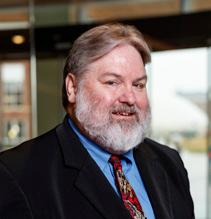
18
Leo Percer Professor of New Testament
John W. Rawlings School of Divinity, Liberty University
beyond the New Testament and is most often used in the sense of “to fall away” or “to fall in/into.” If this definition is accepted, then the language of Hebrews 6 indicates that the danger faced by its readers was a falling away from or an abandonment of their faith. In other words, the author of Hebrews could be seen as warning his readers against a form of deconversion. What was the answer to this danger? The letter to the Hebrews reminds its readers that the danger they faced included the prospect of drifting from the teachings of Jesus, abandoning or responding negatively to God’s promise/command, falling away from the faith due to spiritual immaturity, abandoning the community of faithful believers, and failing to show loyalty to God and to His people in hard times. The answer to avoiding the danger is prescribed as a persevering loyalty to Jesus, His teachings, and His followers. In fact, Hebrews acknowledges that to avoid “falling away,” people need an ongoing discipline and a continuation of fellowship with Jesus and His followers. Spiritual immaturity is the primary cause for “apostasy” in Hebrews, so the proper way to avoid it is the cultivation of spiritual maturity. How does this relate do the concept of deconversion?
Deconversion is often a process that stretches over long periods of time, from several months to many years.10 As a process, it represents a “‘turning from’ and ‘turning to’” which “are alternative perspectives on the same process of personal metamorphosis, stressing either the rejected past of the old self or the present

convictions of the reborn self.”11 So, deconversion may be seen as a spiritual struggle emphasizing a move from a perspective of faith to a perspective of unbelief (a rejection of Christian religion). Deconversion is both a dynamic multi-stage experience of transformative change marked by opposition against the old faith and a repertoire of symbolic meaning that supports a focus that is decidedly more hostile to institutional religion. The people in Hebrews were in danger of turning their backs on Jesus and the Christian faith for some other faith (like Judaism or unbelief). The Jewish faith in the first century enjoyed protections with the Roman Empire, and the early Christian believers did not always enjoy such protection.13 Nonetheless, the problem was not simply security, it was a struggle of belief or faith. The readers of Hebrews struggled to stand firm in a Christian orientation in a hostile environment, and when faced with insecurity as a result of their faith, they were tempted to leave it for a more secure position. That danger led to a lack of loyalty and a process of spiritual immaturity (from the perspective of Hebrews, at least). But the modern danger of deconversion may not be so clearly differentiated.
Experiences of deconversion in today’s world usually include a gradual change away from a faith in institutional religion to a faith in either an agnostic or atheistic worldview. What prompts this gradual change? In both Hebrews and the modern environment, some kind of crisis starts
19
FAITH AND THE ACADEMY:
THE CULTURE WITH GRACE AND TRUTH
ENGAGING
the process. For the Hebrews, the crisis may have been actual persecution, but in our day the crisis is probably intellectual or emotional. Some kind of intellectual doubt or emotional stress plays a role in deconversion.14 A student is confronted with truth claims from two perspectives: a supernatural worldview and a less or non-supernatural worldview. These conflicting truth claims create a crisis of faith that may lead to deconversion. Like the recipients of Hebrews in the first century, the student today may be confronted with the question of whether or not they will remain loyal to a worldview or faith that does not seem to offer security or answers to critical questions. How can we respond to that?
Given the difference in context between the first century setting of the book of Hebrews and modern day, a strong warning narrative may no longer have the desired effect of ameliorating the crisis leading to potential deconversion. In fact, such an approach may come across as dogmatic and somewhat shortsighted. On the other hand, one aspect of Hebrews that Christian educators and ministry leaders need to take to heart is the need to inculcate continued growth toward spiritual maturity. How do we facilitate such a process? One approach would be to deal honestly with the intellectual doubts and questions raised by those who may be in danger of deconversion. Of course, this approach requires an acceptance of the questioner as well as an honest response to the doubts and questions. Like the author of Hebrews, the reasons for deconversion may need to be challenged while also acknowledging that the person raising the questions is still on the path to faith. Encouraging an ongoing loyalty or faithfulness to God requires a foundation of continued loyalty and faithfulness to the person with the doubts and questions.
One part of the deconversion process is a disassociation from the believing community. Sometimes this disassociation is not driven simply by doubts or questions but by a perceived lack of connection to the community. Building a foundation of belonging requires two things: 1) a strong emphasis on a process of discipleship and spiritual growth with knowledge and accountability, and 2) a strong commitment of loyalty to people regardless of their final decision regarding deconversion. The author to the Hebrews often reinforces his readers’ status as believers by statements like: “Even though we are speaking this way, dearly loved friends, in your case we are confident of things that are better and that pertain to salvation” (Hebrews 6:9). In the same passage where he warns them to avoid spiritual immaturity by building a
continual loyalty to God and His Word (based on sound doctrine), the author reminds his readers that he thinks they are on the right track.
To deal with deconversion among college-aged students, educators and leaders need to emphasize both the need for growth (intellectually in doctrine and faithfully in loyalty to God and His people), and the acceptance of those with doubts and insecurities in the context of a community where exploration is safe but discipleship is sure. If skeptics/doubters are not welcome, then they will go somewhere else. If the immature are not challenged, they will not grow. The 21st century finds us in a strange place in Christian education, and yet it is somewhat similar to what a first century author encountered with his church. People are seriously considering whether or not the Christian faith is a good perspective, and Christian leaders are faced with the daunting task of helping them. A focus on building mature believers and accepting doubters (including an honest appraisal of and response to their questions) may be the best response to deconversion today.
1 Lori L. Fazzino, “Leaving the Church Behind: Applying a Deconversion Perspective to Evangelical Exit Narratives,” Journal of Contemporary Religion, 29:2, 251.
2 Ibid., 250.
3 Ibid., 251, and Sergio Perez, Frédérique Vallières, “How Do Religious People Become Atheists? Applying a Grounded Theory Approach to Propose a Model of Deconversion,” Secularism and Nonreligion, 8:3, 2-3.
4 Fazzino, “Leaving the Church Behind,” 251.
5 Luke Timothy Johnson, Hebrews: A Commentary, ed. C. Clifton Black, M. Eugene Boring, and John T. Carroll, 1st ed., The New Testament Library (Louisville, KY: Westminster John Knox Press, 2012), 35-36; William L. Lane, Hebrews: A Call to Commitment, (Hendrickson Publishers, 1988), 16, 20-22.
6 Time and space do not allow a detailed exegesis of these passages, so a brief summary of the warnings will be offered instead.
7 David L. Allen, Hebrews, The New American Commentary (Nashville, TN: B & H Publishing Group, 2010), 359.
8 Ibid., 359-360.
9 Lane, Call to Commitment, 25-26.
10 Frédérique Vallières, “How Do Religious People Become Atheists?” 10.
11 Fazzino, “Leaving the Church Behind,” 251.
12 Ibid., 250.
13 Lane, Call to Commitment, 22-24.
14 Frédérique Vallières, “How Do Religious People Become Atheists?” 10-11.
20
Send Us Your STUDENTS
Let
the Center for Apologetics & Cultural Engagement
equip your students to address today’s most challenging social and cultural issues with humility and wisdom through its Student Fellows program.
Students from all academic disciplines can participate. Applications for Spring 2023 are available at LUApologetics.com.
 A. Chadwick Thornhill Department Chair of Biblical and Theological Studies John W. Rawlings School of Divinity, Liberty University
A. Chadwick Thornhill Department Chair of Biblical and Theological Studies John W. Rawlings School of Divinity, Liberty University
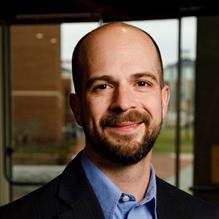
A REFUGE FOR THE DECONVERTED
It’s no secret that Christianity is declining in the West. According to the Pew Research Center, in the United States, the percentage of adults who consider themselves Christians has fallen 12 percentage points in the last decade, standing at 65%. In contrast, the percentage of the religious unaffiliated, often referred to as the “nones,” has risen 9 percentage points, accounting for 26% of U.S. adults. This decline is occurring across Christian denominations as well. In some ways, this shift is a generational one, with 84% of the Silent Generation and 76% of Baby Boomers self-identifying as Christian, and just 49% of Millennials.1 And “deconversion” stories, stories of those formerly identifying as Christian who now no longer do, are, in fact, most prominent in young adults.2
The portrait of decline can be painted from several angles. As John Marriott summarizes,
[P]erhaps the most concerning statistic comes from the Pinetops Foundation who, in 2018, claimed that over the next thirty years Christian affiliation in the U.S. will decline by one million per year. Which means that between 30 and 42 million young people raised in Christian families and who call themselves Christians will say they are not by 2050.3
Globally, Christianity’s “decline” is much more moderated, dropping from 34.5% in 1900 to 32.3% in 2020. The global population of Christianity thus has shifted largely away from its former “center” in Europe and North America to Latin America, Africa, and Asia.4 The future of Christianity seems largely a global one.
In the West, however, “cultural Christianity” is on its way out, and as the Christian population decreases, its cultural influence will as well. The reasons for this decline, as one might expect, are multi-faceted, and our late modern environment, with its radical “expressive individualism,” certainly provides no small influence in this trend.5 Research has focused
in recent years on why people deconvert. According to Streib and Keller, most cases of deconversion show the presence of the following contributing causes, with varying weight ascribed within individual experiences:
(1) loss of specific religious experiences; (2) intellectual doubt, denial, or disagreement with specific beliefs; (3) moral criticism; (4) emotional suffering; and (5) disaffiliation from the community.6
While Christian apologists since the Enlightenment have focused primarily on the intellectual obstacles to faith, it is clear from these contributing causes that we need a “whole-person” approach to dealing with religious doubts. Relational, experiential, and emotional catalysts may contribute as much, if not more so, to the loss of faith in individuals than questions they have about the intellectual merits of the faith.
In the wake of the #MeToo and #ChurchToo movements, a rise in the corrosion of trust in religious institutions is also a significant contributing factor to deconversion.7 While, from an intellectual perspective, one might be able to separate the offenses of religious leaders from the validity of the truth claims a religion might make, in practice for those affected by abuse and mistreatment in a religious setting, the religion itself may be seen as the source of personal suffering.8 In other words, we as much show the nature of the faith with our actions as we tell what it is like with our words. And if our showing and telling are incoherent (examples of which continue to rapidly accumulate), substantial resistance to and rejection of the faith will continue. It is certainly to our shame to offer such a meager visible witness of the great love of our God demonstrated in the good news of Jesus Christ.
Is there a way out of this decline? Can the tide of deconversion in the West actually be turned? The statistical predictions certainly do not favor this outcome. This should not diminish, however, the burden each individual Christian, and Christian
22
Faculty Contribution
leaders especially, should feel to being an agent of change. Rather than dig in our heels in outrage at the cultural circumstances we find ourselves in, a substantial change in the power of our witness may come if the Church heeds the call both to selfexamination and to re-centering itself on the priorities of King Jesus.
Marriot offers this advice: “To avoid setting up believers for a crisis of faith Christians of all stripes must reflect on the kind of faith they are passing on to those they are ministering to.”9 In other words, have we, in our understanding of the Church’s mission, actually in practice prioritized what Jesus commanded? Have we passed on a faith that travels beyond mere belief to embodied faithfulness? Have we cultivated love for God as our first order of business and love for neighbor as the essence of our mission? If we have not, let us repent. Let us ask God for forgiveness. Let us realign our priorities to the priorities Jesus himself has given us.
What would it mean for us, then, to love the “deconverted?” To love the “nones?” If love, as McKnight has defined it, is a “rugged commitment to the good of another,” to be “with them” and “for them” in the process of seeking Christlikeness,10 then how does the Church operate in this fractured cultural environment on the basis of love?
It first means giving real space, empathy, and care to the personal pain each one of our neighbors faces, especially where the Church has been complicit in this pain. As Nouwen writes,

Our suffering and pains are not simply bothersome interruptions of our lives; rather, they touch our very uniqueness and our most intimate individuality. The way I am broken tells you something unique about me. The way you are broken tells me something unique about you. ... Our brokenness is always lived and experienced as highly personal, intimate, and unique. I am deeply convinced that each human being suffers in a way no other human being suffers.11
To love our neighbor in this way means to be “with” them in their pain, not excusing it as something “just emotional” for the real obstacles to faith, but seeing their pain as a deeply personal dimension of their own humanity. Too often in our combative stance toward all things secular, we overlook that those whom we have postured as our enemies are also human and, as such, objects of God’s immeasurable love.11
As it pertains to the deconverted, have our friendships with them ended when they leave the four walls of the church? Or ought we pursue friendship as a means
23 FAITH AND THE ACADEMY: ENGAGING THE CULTURE WITH GRACE AND TRUTH
of love in spite of, or perhaps even because of, their rejection of the faith? Can we truly love our neighbor in this way, not as a means to an end but as the essence of our mission? Can we help them to see God’s love through our love for them in the midst of their pain? Nouwen again is insightful:
I want to say to you that most of our brokenness cannot be simply taken away. It’s there. And the deepest pain that you and I suffer is often the pain that stays with us all our lives. It cannot be simply solved, fixed, done away with. ... What are we then told to do with that pain, with that brokenness, that anguish, that agony that continually rises up in our heart? We are called to embrace it, to befriend it. To not just push it away ... to walk right over it, to ignore it. No, to embrace it, to befriend it, and say that is my pain and I claim my pain as the way God is willing to show me His love.12
If love is the essence of our mission, then love must be our first thought toward how we navigate a deeply fractured world. To be discipled in the way of Jesus means to be discipled in the way of love — both love for God and love for neighbor as oneself. Has our discipleship led us to love as our reflex? Has love become our instinctive response to the world? This is truly a battle against our flesh, which naturally seeks payback, retaliation, and “winning” against our so-called enemies.
As Chesterton famously said long ago, “[T]he great ideals of the past failed not by being outlived, but by not being lived enough… The Christian ideal has not been tried and found wanting. It has been found difficult; and left untried.”13 Indeed, too often this way of love as mission has been left untried. It was this kind of love in the early church that garnered its cultural influence. As the Roman emperor Julian once remarked, it was the benevolence of the Church toward strangers and the holiness of their lives that most expanded their influence throughout the Empire.14 If we find ourselves bothered by our cultural circumstances, and in the decline of Christianity in the West, it seems to me the best place to start is in loving our neighbors, deconverted or not.

24
1 Pew Research Center, “In U.S., Decline of Christianity Continues at Rapid Pace,” last modified Oct. 17, 2019, https://www.pewforum. org/2019/10/17/in-u-s-decline-of-christianity-continues-at-rapidpace/.
2 “Most of those who decided to leave their childhood faith say they did so before reaching age 24, and a large majority say they joined their current religion before reaching age 36. Very few report changing religions after reaching age 50” (Pew Research Center, “Faith in Flux,” last modified February 2011, https://www.pewforum. org/2009/04/27/faith-in-flux/).
3 John Marriott, “Deconversion: The All-Or-Nothing Fallacy,” Christian Scholar’s Review, last modified June 30, 2021, https:// christianscholars.com/guest-post-deconversion-the-all-or-nothingfallacy/.
4 Gina A. Zulro and Todd M. Johnson, “Is Christianity Shrinking or Shifting?,” Lausanne Global Analysis, 10:2 (2021): https://lausanne. org/content/lga/2021-03/is-christianity-shrinking-or-shifting.
5 Barbour cites the rise in pluralism and individualism as contributing factors (John D. Barbour, Versions of Deconversion: Autobiography and the Loss of Faith (Charlottesville: University Press of Virginia, 1994), 51).
6 Heinz Streib and Barbara Keller, “The Variety of Deconversion Experiences: Contours of a Concept in Respect to Empirical Research,” Archive for the Psychology of Religion, 26 (2004): 181-200.
7 According to a recent Pew study, deconversion most often occurs because of a change in religious or moral beliefs, or a lack of trust in religious institutions (Pew Research Center, “Faith in Flux,” last modified Feb. 2011, https://www.pewforum.org/2009/04/27/faithin-flux/).

8 “…that they became unaffiliated, at least in part, because they think of religious people as hypocritical, judgmental or insincere. Large numbers also say they became unaffiliated because they think that religious organizations focus too much on rules and not enough on spirituality, or that religious leaders are too focused on money and power rather than truth and spirituality” (Pew Research Center, “Faith in Flux,” last modified Feb. 2011, https://www.pewforum. org/2009/04/27/faith-in-flux/).
9 John Marriott, “Deconversion: The All-Or-Nothing Fallacy,” Christian Scholar’s Review, last modified June 30, 2021, https:// christianscholars.com/guest-post-deconversion-the-all-or-nothingfallacy/.
10 Scot McKnight, “The Four Elements of Love,” Jesus Creed, last modified May 1, 2015, https://www.patheos.com/blogs/ jesuscreed/2015/05/01/the-four-elements-of-love/.
11 Henri Nouwen, Life of the Beloved (New York: Crossroad, 1992), 89-90.
12 Henri Nouwen, You Are the Beloved (New York: Crown Publishing Group, 2017), 310.
13 G.K. Chesterton, What’s Wrong with the World? (New York: Dodd, Mead and Company, 1912), 48. Or, As McKnight suggests, we ought to name our enemies, and then ask ourselves how we are loving them (McKnight, “The Four Elements of Love,”https://www.patheos.com/ blogs/jesuscreed/2015/05/01/the-four-elements-of-love/).
14 Cited in Matt Crawford, “The Compassion of Early Christians,” Bible Mesh, last modified Feb. 7, 2020, https://biblemesh.com/blog/ the-compassion-of-early-christians/.
25
Keith Lahikainen Associate Professor of Psychology School of Behavioral Sciences, Liberty University

CONCEPTUALIZING THE PSYCHOLOGICAL DIMENSIONS OF DECONVERSION
One of the heaviest burdens a Christian can come to bear is when a loved one walks away from the faith. Despite the eternal significance of such a change for the one who falls away, the experience is not exclusively personal. Believing family and friends are often left picking up the pieces, grieving over the loss of communion and the spiritual fate of the deconverted (2 Peter 2:21). Believers may come to feel betrayed (Matthew 24:10) and left wrestling with questions of “how” and “why” their beloved lost faith in Jesus, or whether the individual ever truly believed. Further still, they may struggle with feelings of guilt, wondering whether they could have done something different to alter the deconversion. Such questions can take an emotional toll on even the most mature Christians. Yet an individual’s deconversion rarely happens overnight. There is most often a notable progression from when first doubts arise to when the final exodus from faith occurs. The problem is that many believers are ill-equipped to identify the severity and progression of the deconversion process. Therefore, having a conceptual framework to identify the outward signs of inner changes taking place would be beneficial. Coming to understand and engage a person who is wandering from the faith could help to save their very soul, which is something believers are called to do (James 5:20). The following essay proposes that there are discernable psychological and behavioral markers that emerge in faith deconversion which are common in people who change. Many of these markers make it possible to recognize the deconversion process in individuals and offers guidelines for engaging them in ways that are most likely to facilitate positive change.
As the divine creator of human psychology, God works holistically through spiritual and psychological processes in turning people toward Him and in allowing human rebellion. Although conversion to faith and falling away from faith (i.e., deconversion) are ultimately spiritual phenomena, examining the psychological dimensions of these changes can provide
a deeper understanding of the processes involved as well as the possibility of influencing such outcomes. Prospectively, we would be able to psychologically assess the likelihood of an individual’s faith status through the conveyance of belief via language and faith-resonant behaviors. These conceptual parameters align with God’s Word, which asserts, “For with the heart one believes and is justified, and with the mouth one confesses and is saved.” (Romans 10:10, ESV) and “Whoever abides in Me and I in him, he it is that bears much fruit, for apart from Me you can do nothing” (John 15:5, ESV).1 It is evident from these passages that some form of both cognitive and behavioral assent is manifest in the believer’s transformation. Additionally, the book of James emphasizes the power of the tongue and inextricable connection between the professing of faith and one’s behavior, proclaiming, “For as the body apart from the spirit is dead, so also faith apart from works is dead.” (v. 2:26). These factors are not the cause of faith but rather the manifestation of its presence. Although we cannot determine someone’s faith with absolute certainty, we can observe and interact with the psychological markers of such changes in the person’s language and behavior.
Psychological Reactance
Despite the apparent unraveling of Peter’s professed faith in Matthew 16:16 to his thrice denial in chapter twenty-six, such a dynamic can be understood in terms of psychological reactance. Reactance is an averse motivation to counter perceived pressure to align oneself with external standards. For example, expectations to change placed upon an individual when they are not ready could generate resistance. The more pressure that is applied to conform, the greater the resistance to change. The Transtheoretical Model of Change (TTM) has become widely used in countering psychological reactance in clinical settings. Psychologists James Prochaska and Carlo DiClemente
26
Faculty Contribution
developed the TTM to classify behavioral change processes in the initiation of, and recovery from, substance abuse.2 The model has since been used in a variety of contexts to address change-related issues ranging from diet and nutrition to medication compliance and bereavement.
The practicality of the TTM resides in its description of six distinct stages, all of which are discernable and open to particular methods for facilitating change. Therefore, the TTM provides a functional framework for understanding and working with the psychological markers and processes of change that accompany faith deconversion. According to the TTM, change does not happen by accident, nor is it likely to occur spontaneously outside the contextual indicators described in each stage. Most individuals in the process of deconversion exhibit a progressive number of verbal and behavioral markers well before they leave the faith. It would be the rare instance that one goes to bed a believer in Jesus and wakes up a nonbeliever. Often in retrospect, a “faith autopsy” reveals numerous signs and warnings of someone’s deconversion in stages. Progression through the stages is not necessarily linear but rather a fluid spiral in which individuals can move back and forth across the stages. Despite the potential variability in movement, knowing the stage status of an individual equips those serving the person in counsel to use an approach that is conducive to facilitating change versus reactance.

First Stage: Precontemplation
The first stage of the model is precontemplation, in which there is no desire or intention to change. Individuals in this stage would not be considering a need to change and may even be unaware of issues that exist outside their current beliefs. From the perspective of someone moving from faith to deconversion, we would describe individuals who profess faith in Christ while exhibiting the “behavioral fruit” of such faith without consideration of change to be in precontemplation. This does not, however, preclude the potential to experience occasional doubt or struggle with reconciling aspects of faith and behavior. Rather, precontemplative individuals will actively resist attempts to challenge their beliefs or to be proselytized to a new faith. Nonetheless, precontemplators may also include individuals who have grown up in a Christian environment and who have cognitively internalized a “cultural faith.” As such, they have not developed a true saving faith in Jesus but lack an awareness or desire to explore alternative beliefs. Like those with a saving faith, these individuals would be apt to resist overt efforts to dispute their beliefs. Nevertheless, they would be vulnerable to more subtly progressive tactics that aim to raise their consciousness regarding other belief systems. Since they have internalized
27
FAITH AND THE ACADEMY: ENGAGING THE CULTURE WITH GRACE AND TRUTH
an external model, greater awareness can lead to selfreevaluation in which one’s own values and behaviors are examined in light of new knowledge. This process is likely to be accompanied by an environmental reevaluation where the individual assesses the role of others in shaping their beliefs. Social structures supporting the change toward deconversion (e.g., nonbelievers or fellow “believers struggling with their faith”) drive the course of change. Nonetheless, these processes are not inherently negative and do not necessarily lead to deconversion. On the contrary, when intentionally used in the context of discipleship, it is argued that they can be leveraged to develop or strengthen faith.
Second Stage: Contemplation
Those precontemplators who move on to actively consider change by seeking out information and reassessing the congruence of their spiritual beliefs and behaviors are considered to be in the contemplation stage. Though contemplators are not ready to change, through exploration of alternative views and burgeoning dissonance they may begin to experience significant distress in regard to their faith. Furthermore, contemplators might express an overt curiosity about spiritual matters and perceived challenges to faith in Christ. In their most honest moments, such individuals may express ambivalence about their faith or about making changes. The potential fear and anxiety that can be generated through contemplating change can leave them “stuck,” unable to grow in their faith or to walk away. Often left waiting for some striking event to shift them in one direction or another, they may be hesitant to share the depth of their struggles. Making room for safe and honest conversations that include a respect for the doubts they have while facilitating the selfidentification of positive faith features can be helpful. Although the goal is to help contemplators resolve their ambivalence in the direction of faith in Jesus, resolution can progress the other way.
Third Stage: Preparation
When an individual resolves their ambivalence in the direction of leaving the faith, they would be considered to be in the preparation stage of change. Although a decision has been made to change, the individual has not yet taken action to leave the faith, announce their nonbelief publicly, or dissolve relationships with believers. However, there is a marked increase in their focus on the future, accompanied by a
diminished focus on past connections to their faith. Here the individual spends more energy on preparing for change than weighing out the pros and cons of their decision. Others may notice a dramatic relief from the distress the individual was expressing prior to making a decision. Additionally, preparers may talk openly and positively about those who have left the faith and gauge the reaction of others. Efforts to engage those preparing to leave the faith should focus on open and honest recognition of the change taking place. Preparers will have developed confidence in their decision to walk away but are still likely to be experiencing anxiety about making the “right” decision. Therefore, supportive discussions emphasizing the potential dire consequences of their decision are warranted. Oftentimes, believing loved ones may perceive this stage as their last opportunity to exert pressure on the individual to not recant their faith. Or, they may unconditionally accept the change taking place in hope of not driving the individual further away. The discipleship goal here is to shift back to contemplating faith in Jesus, along with the reemergence of authentic ambivalence. Although loved ones may be tempted to “push for action” (i.e., return to professed faith), it may generate reactance or a false confession in preparers. Great care should be taken in that a successful return to contemplation is likely to include a recurrence of dissonance and distress.
Fourth Stage: Action
Those who follow through with leaving the faith are seen as taking action. The action stage is characterized by a firm commitment to their decision, a marked change in their social relationships and the environments in which they associate, as well as the possible termination of relationships not supporting their change. Those entering the action stage may even become exuberant advocates of nonbelief, assertively countering arguments for faith and opposing believers on principle alone. This stage can be the most disheartening for believing loved ones. Attempts to overtly counter the new belief systems are likely to generate reactance, whereby the individual “digs deeper” into their position. If the new position is sustained and a new identity firmly developed around their nonbelief and nonbelieving social support systems, the individual would be considered in the final maintenance stage of change and deconversion.
28
Fifth Stage: Maintenance
In the last stage of deconversion, we would invert the model so that those who deconvert are also conceptualized as residing in the first stage of faith development. The precontemplation stage of faith development can be described as spiritual blindness, hardness of heart, or a state of being completely unaware that one is spiritually dead and in need of Jesus. Hence, efforts to engage precontemplators as if they are one step away from returning to faith are less likely to succeed. Rather, raising their awareness by asking questions that elicit potential change talk and arousing emotions about the challenges of their nonbelief would be more conducive to change. Efforts to encourage ambivalence regarding their nonbelief while respecting their decision making would be the next step in helping them transition to the contemplation stage of faith.
It must be clearly stated that the proposed use of the TTM will not identify an individual’s true faith, nor will it provide a means of generating faith in Christ where it does not otherwise exist through the work of the Holy Spirit. In addition, the use of the model is not meant to replace or compete with biblical approaches used to reconcile deconverted individuals (e.g., prayer, evangelism, or discipleship). Rather, the TTM can be used to conceptualize current levels of faith development or deconversion. It also provides a framework for understanding the needs and characteristic behaviors of individuals in each stage. Further still, the TTM offers guidance for engaging individuals with stage-appropriate interventions, which are likely to maximize their effectiveness. Regardless of whether truly saved individuals can theologically fall into apostasy, the TTM honors the autonomy of persons and the work of the Holy Spirit in bringing people to genuine faith. It is relationally focused and facilitates a response from the individual through the necessary involvement of others. The approach focuses on meeting individuals where they are, not where we desire them to be. And in doing so, it can promote spiritual growth and change in the facilitating believer who attempts to bring back those who have wandered from the truth (James 5:19-20).
1 Unless otherwise noted, all biblical passages referenced are in the English Standard Version (Wheaton, IL: Crossway, 2008).
 2 James O. Prochaska & Carlo C. DiClemente, “Transtheoretical therapy: Toward a more integrative model of change,” Psychotherapy, 19, no. 3, (1982): 276-288. doi:10.1037/h0088437.
2 James O. Prochaska & Carlo C. DiClemente, “Transtheoretical therapy: Toward a more integrative model of change,” Psychotherapy, 19, no. 3, (1982): 276-288. doi:10.1037/h0088437.
BEFORE YOU LOSE YOUR FAITH: AN INTERVIEW WITH IVAN MESA

Recently, Ivan Mesa, editorial director for the The Gospel Coalition, took time to have a conversation with Jack Carson, the new executive director for the Center for Apologetics & Cultural Engagement here at Liberty.

Carson: What made you decide to edit the book Before You Lose Your Faith?
Mesa: Like many, I kept hearing public deconversion stories over the years that would sadden and discourage me. But it wasn’t until I heard of Rhett and Link — the duo behind Good Mythical Morning (their daily YouTube show with more than 16 million subscribers) and Ear Biscuits (their podcast) — that I began thinking of how to positively address this phenomenon. The two of them — who as of Dec. 2020 are the fourth-highest YouTube earners, making $20 million a year — shared about how they moved from Cru staffers and missionaries to unbelievers — or, as Rhett now describes himself, a “hopeful agnostic.” The comedians had for years been a staple in many homes with children and young adults (with videos ranging from “epic” rap battles to testing the world’s hottest peppers to getting shot with Nerf guns), so we kept hearing from parents and youth and campus ministry leaders that their public announcement unsettled the faith of many young people.
Carson: What is deconstruction, and why does it seem to be a growing trend in the world today?
While it might be tempting to leave the church in order to find answers, Before You Lose Your Faith argues that church should be the best place to deal with doubts. Featuring contributors such as Claude Atcho, Rachel Gilson, Jay Y. Kim, Brett McCracken, Karen Swallow Prior, Derek Rishmawy, and Jared C. Wilson, this book shows that deconstructing does not need to end in unbelief. In fact, deconstructing can be the road toward reconstructing — building up a more mature, robust faith that grapples honestly with the deepest questions of life.
30
Guest Interview
Mesa: That’s the million-dollar question! There isn’t a widely accepted meaning — it all depends on what a person means when they use it. At the very least, it carries the idea of taking apart what you believe, of questioning your inherited belief system. It could mean everything from a genuine believer struggling with normal doubts to outright abandoning the whole Christian faith.
It’s a growing trend in large part because of social media, which puts the spotlight on well-known Christians with large social-media followings, book deals, and podcasts. My best read is that these highprofile cases have normalized unbelief, emboldening ordinary folks to proceed in their own deconstruction journeys. That’s one of the ways I think social media could be accelerating this trend. Whereas 50 years ago it might’ve been hard to find a “community” of deconstructing Christians (and thus you didn’t feel it was a valid social option), now it’s easy to find such “community” online, further removing fears or stigmas that might be associated with spiritual deconstruction. Of course, while technology has influenced some of these social dimensions, at its core this path toward unbelief is nothing new. Jesus himself warned of it: “Because lawlessness will be increased, the love of many will grow cold. But the one who endures to the end will be saved” (Matthew 24:12-13). From Demas (2 Timothy 4:10) to Hymenaeus and Philetus (1 Timothy 1:20; 2 Timothy 2:17), the early church saw many abandon the faith they once professed (1 John 2:19).
Carson: In my experience, practical concerns about deconversion haven’t been discussed much in the church. Most discussions on deconversion end up becoming dominated by theological questions surrounding eternal security and apostasy. Has that been your experience? If so, do you have any thoughts about why that might be the case?

Mesa: Questions about eternal security and apostasy are important, but they don’t always address the honest struggles and doubts many Christians have. I don’t know if “deconversion” per se needs to be addressed in the church, but surely we should have church cultures in which questions can be raised and we can patiently walk people through topics. I like to avoid sweeping statements about the Church, but I wonder if in many of our churches we get too nervous about questions — as if conversion automatically means we’re fully mature believers with all the answers.
Another related concern is that of church contexts devoid of healthy theological triage. Coined by R. Albert Mohler in 2005, theological triage means that not everything is a first-order issue (like the Trinity or the Gospel).1 In churches where theological sectarianism is the reality, there is greater danger of creating a suffocating environment where there is no latitude to disagree (see Philemon 3:15; Romans 14:1). Hence the Christian struggling with a third-order doctrine (say the millennium) then questions the Gospel itself because there are few healthy distinctions made about what’s first, what’s second, what’s third. In churches where theological minimalism is dominant, then it’s a free for all. As Gavin Ortlund explains in Finding The Right Hills to Die On, “There is a sad poverty of awareness in … adopting an up-for-grabs mentality in which theology functions like the people in the book of Judges, when ‘everyone did what was right in their own eyes.’”2 The Christian in this context can struggle with that which is “of first importance” (1 Corinthians 15:3), namely, the Gospel.
Carson: What are some concepts discussed in Before You Lose Your Faith that may be novel or surprising for people who have not looked into the deconversion trend before?
At the end of the day, the growing trend in deconstruction is something Christians reading their Bibles should expect. But with the heart of Christ, we can seek to “admonish the unruly, encourage the fainthearted, help the weak, [and] be patient with everyone” (1 Thessalonians 5:14, NASB).
Mesa: The most helpful concept for me has been that of disenculturation. As Hunter Beaumont explains, “Disenculturation is the process used by missionaries to differentiate the Gospel from culture. Having moved from one culture to another, missionaries can see that the Gospel is like a kernel protected by an outer husk
31 FAITH AND THE ACADEMY: ENGAGING THE CULTURE WITH GRACE AND TRUTH
(culture). Their job is to ensure that the Gospel kernel is free to enter new cultures without being captive to its old husk.”3 In like manner, we need to be able to differentiate the Gospel from evangelical subculture — whether it’s restrictions on Harry Potter, creepy talks on sexual purity, or syncretistic melding of religion and politics, and so on. So rather than deconstructing, he argues that disenculturation is a normal part of every mature spiritual development, since not everything we experience is biblical Christianity. We have to be able to distinguish between what is truly biblical and that which is merely cultural.
Carson: If one of our readers has a deconstructing friend or family member, how would you encourage them to prepare for healthy, Gospel-centered conversations?
Mesa: One, realize you don’t have to have all the answers. Two, aim to be so rooted in Christ and assured of his never-failing love that you’re then able to help your friend or family member on their journey. Three, in these moments, we’re often unsure of what to say and when to say it, so that’s why we should pray. We pray for wisdom in such moments knowing that God delights in answering our prayers (cf. James 1:5; Luke 11:5–11). Four, embrace the local church. You don’t have to bear this burden alone. Let the Church be the Church. Enlist a small group of brothers and sisters to pray for your friend. Invite your friend to your Sunday gatherings so they can hear God’s Word preached. Let your friend see the beauty of what Mark Dever and Jamie Dunlop call the “compelling community” in action — the Church as a refuge for weary sinners, redeemed by Christ, on their way to glory.

 1 Albert Mohler, “A Call for Theological Triage and Christian Maturity.” Albert Mohler, July 12, 2005. https://albertmohler.com/2005/07/12/acall-for-theological-triage-and-christian-maturity.
2 Gavin Ortlund, Finding the Right Hills to Die on: The Case for Theological Triage (Wheaton, IL: Crossway, 2020), 54.
3 Hunter Beaumont, “Don’t Deconstruct—Disenculturate Instead.” Essay. In Before You Lose Your Faith: Deconstructing Doubt in the Church, ed. Ivan Mesa (Austin, TX: The Gospel Coalition, 2021), 33-44.
1 Albert Mohler, “A Call for Theological Triage and Christian Maturity.” Albert Mohler, July 12, 2005. https://albertmohler.com/2005/07/12/acall-for-theological-triage-and-christian-maturity.
2 Gavin Ortlund, Finding the Right Hills to Die on: The Case for Theological Triage (Wheaton, IL: Crossway, 2020), 54.
3 Hunter Beaumont, “Don’t Deconstruct—Disenculturate Instead.” Essay. In Before You Lose Your Faith: Deconstructing Doubt in the Church, ed. Ivan Mesa (Austin, TX: The Gospel Coalition, 2021), 33-44.
Michael

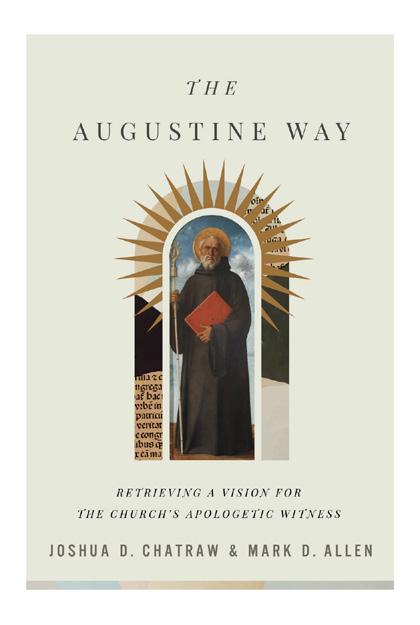
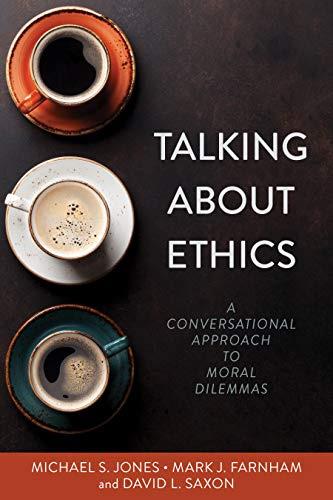



Jesus and Disability: A Guide to Creating an Inclusive Church
Approaching the New Testament: A Guide for Students
McClendon and John Cartwright
Augustine Way: Retrieving a Vision for the Church’s Apologetic Witness
D. Chatraw and Mark Allen
May 2023 Talking About Ethics: A Conversational Approach to Moral Dilemmas
Chris Hulshof
Adam
The
Joshua
ETA:
S. Jones,
J. Farnham,
Check Out Our Upcoming And Recent Publications CENTER for APOLOGETICS & CULTURAL ENGAGEMENT LUAPOLOGETICS.COM
Mark
and David L. Saxon
Andrew Walker Assistant Professor of English Director of the English M.A. Program
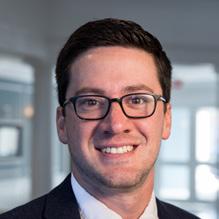
THE CHRISTIAN AND THE CRITICAL SPIRIT
In 2017, The New York Times film critic A.O. Scott published a book with the audacious title Better Living Through Criticism: How to Think About Art, Pleasure, Beauty, and Truth. Although one must forgive the overly insistent subtitle, the opening claim would seem to inspire even more incredulity. What, after all, has criticism to do with a well-lived life? If there still is a popular image of the critic, it seems to be one of the cultural vampire, sucking the lifeblood of its object in pursuit of the critic’s own grandeur and self-preservation. Centuries after she wrote the remark, authors might quickly echo the warning the Puritan poet Anne Bradstreet gave to her book upon its publication, admonishing it like a child, “In Criticks hands, beware thou dost not come.”1
However, Scott suggests that the role of the critic or, more particularly, the disposition and habit of criticism, is ever-needed. Unlike the popular vision of the critic as vampire, the embrace of criticism and the critical spirit seeks to push us back from the current climate in which we find ourselves, one where “we are conscripted into a polarized climate of ideological belligerence in which bluster too often substitutes for argument.”2 In the midst of the “ideological belligerence” that consumes so much of our cultural lives — not just our political or social lives but even our spiritual lives — what is it then that the critical spirit can bring about? What better living can be had in the rediscovery of an honest and sincere critical voice and disposition? Taking in the historical view of criticism and not just its popular points of reference — one that takes into account the reformational aspects of its practices — we find in it, I would argue, a way forward through the cultural bluster in which we find ourselves.
Criticism, Critique, and the Role of the Critic
One of the major watch-words to have stirred some controversy in the emergent ex-vangelical movement, particularly among those wrestling with their
cultural ties to the church, has been the language of deconstruction. Although the use diverges from that in literary studies, the tie to critique is certainly of note. Both the defenders and opponents of the term have suggested that its critical element serves as its primary value — on the one hand, distinguishing and wrestling away the accretion of unnecessary cultural signifiers from the church or, on the other, deconstructing the faith altogether. Yet while the bedrock of criticism is, after all, to “criticize,” it is certainly not its firstfruits. The critic’s role is not chiefly fault-finding and dismissal, however much it may involve an act of judgement.
In the midst of the Victorian era that set the ground for so much of our contemporary cultural and religious life, the poet and critic Matthew Arnold, like Scott’s much later example, attempted to redeem the position of the critic. In his essay, “The Function of Criticism at the Present Time,” Arnold acknowledges the preeminent place of the creative over the critical turn of mind, but he nonetheless insists that the critic remains essential to the creation of a cultural ground capable of producing work worthy of esteem and contemporary value. In his words, the responsibility of the critic is to “make an intellectual situation of which the creative power can profitably avail itself.”3 Believing that the creative object deserves its favored status in the culture, criticism in this Arnoldian vein seeks to push the object of its attention in the direction of excellence, creating the conditions for flourishing that he had found impossible. The critic, in Arnold’s metaphor, can clearly see and lead the way toward the “promised land,” having desired to enter it, even if it is never reached.
In the decades that followed, the great Christian poet T.S. Eliot would respond to Arnold’s claim with a bit of skepticism in his response, “The Perfect Critic,” where he would say of Arnold that he “was rather a propagandist for criticism than a critic.”4 But it was, in some ways, Arnold’s propaganda that allowed for someone of Eliot’s stature and poise to
34
Faculty Contribution
enter the creative, cultured “promised land” that Arnold had desired to create. He had furnished Eliot with the culture that could birth such a poetic vision. For Eliot, the spirit of criticism led not with an impressionistic enthusiasm but an analysis and construction. Eliot’s critic is concerned chiefly with clarity, with criticism functioning forensically and definitionally — fundamentally proceeding by wrestling with experience and not seeking merely to express it. To develop the critical faculty, in Eliot’s vision, is to tame our inner experience even as we develop it as a public utterance. The best and perhaps most pertinent example is from the most famous of Eliot’s critical essays, where he proclaims in “Tradition and the Individual Talent” that even though we can consider the whole of tradition, the “existing order,” “complete before the new work arrives,” the new creation disrupts that existing order, leaving it “ever so slightly … altered.”5 The role of the critic, like the artist before him, is in a continual wrestling with the past, contesting the visions of past practitioners, and, importantly, assessing its relevance to the present.
In C.S. Lewis’ 1961 book, An Experiment in Criticism, the Oxford don suggested something of a radical departure from the critical worlds of Arnold and Eliot. With more than bit of impishness, Lewis suggests that instead of judging a work based on its formal and thematic elements, of ever cultivating new critical ground, one should judge the work in light of the reader (and reading) that it creates. In Lewis’
experiment, the place of criticism is centered on the critics and readers themselves. His view is one in which there can be a good reader — one who is open to the experience of the work expecting to be challenged and changed — and there can be a bad reader — one who seeks to “rush hastily forward to do things with the work of art instead of waiting for it to do something to them.”6 For Lewis, the first task, prior even to criticism, is “surrender.” He asks us to “Look. Listen. Receive. Get yourself out of the way.”7 In so doing, we prove ourselves the best kind of critic, one attuned to our own inner states of being and ways of perceiving the world.
If there is, as there seems to be, a burgeoning reconsideration of the cultural forms and practices of the Christian church in America, then the cultivation and reformation of a critical spirit should stand at the center of our personal formation and institutional discipleship, for in so doing, we might better create the kind of cultural ground now needed. Like Arnold, we might shape new possibilities for cultural expression, while, like Eliot, helping to reorder and reckon with the real history of our institutions. In so doing, we might create better ones. And in the critical act of surrender suggested by Lewis, seeking to understand and be moved first, we might pull back from the cultural bluster that so marks our days. The function of criticism in our own time is in the renewal and conversion of one’s sensibility. It is, in the language of the reformers, to always be reforming, not just in the outward expressions of our common faith but in the spiritual disciplines as well.
The Cultivation of the Critical Spirit
Of these historical visions of the critical spirit, each had to negotiate the particular challenges of the critic’s role in the respective time and culture. Importantly, in Scott’s vision, the critic occupies no special place. For him, “A critic will be no different from anyone else who stops to think about the experience.”8 In each of these descriptions of criticism, we see clearly that it is not the contemporary language of the “take,” the momentary impression, but instead the development of a position, a place from which to build one’s intellectual and perhaps spiritual vision of the world. As Scott shows us, this is a task for the contemplative individual. The cultivation of the critical spirit takes a certain kind of stopping.
The critical spirit must also be cultivated for the renewal of our institutions, practices, and cultural

35
FAITH AND THE
AND TRUTH
ACADEMY: ENGAGING THE CULTURE WITH GRACE
forms, with a commitment to discipleship and public forums in which criticism can be read, shared, and heard. In part, the lack of creative and cultural power in some Christian institutions stems perhaps from the inability to cultivate and support critical voices, and in their unwillingness to listen and surrender first. Such a culture can only expect a lack of critical thinking and a continual, decedent repetition of cultural forms. Such a lack of critical energy and vivacity result only in the rote memory of a dead form. In his provocative dialogue on the subject of criticism, “The Critic as Artist,” the Irish poet and playwright Oscar Wilde calls criticism “the record of one’s own soul,”9 the cultivation and testimony of one’s perception. In an era where there is growing anxiety over deconversion, radical cultural re-sorting, and ever-changing social pressures, we must recall that criticism is not just an inward “record,” but the work of a person whose attention and vision can help to arrest and develop the vision of others. It is evangelistic in that its intent is to share the reflective journey of the critic, and the “time for criticism is always now.”10
1 Bradstreet, Anne. “The Author to Her Book,” accessed November 10, 2021, https://www.poetryfoundation.org/poems/43697/the-author-toher-book.
2 Scott, A.O. Better Living Through Criticism (New York: Penguin Random House, 2016), 10.
3 Arnold, Matthew. “The Function of Criticism at the Present Time.” Essays in Criticism (London: Macmillan, 1865), 6.
4 Eliot, T.S. “The Perfect Critic.” The Sacred Wood (New York: Alfred A. Knopf, 1921), 1.
5 Eliot, T.S. “Tradition and the Individual Talent.” The Sacred Wood (New York: Alfred A. Knopf, 1921), 44.
6 Lewis, C.S. An Experiment in Criticism (New York: Cambridge UP, 1992), 25.
7 Ibid., 19.

8 Scott, Better Living Through Criticism, 10.
9 Wilde, Oscar. “The Artist as Critic.” Critical Writings of Oscar Wilde (Chicago: U of Chicago P, 1969), 365.
10 Scott, Better Living Through Criticism, 10.
36
FAITH AND THE ACADEMY: ENGAGING THE CULTURE WITH GRACE AND TRUTH

37
Ronnie P. Campbell Jr. Associate Professor of Theology John W. Rawlings School of Divinity, Liberty University

DECONVERSION, THE PROBLEM OF SUFFERING, AND THE GOD WHO DEFEATS EVIL
In recent years, we have seen a flurry of deconversion stories — author and pastor Joshua Harris, worship leader Marty Sampson, and the YouTube duo of Rhett and Link, to name a few. Bart Ehrman, New Testament scholar at the University of North Carolina, Chapel Hill, recounts his own deconversion in his book, God’s Problem:
If there is an all-powerful and loving God in this world, why is there so much excruciating pain and unspeakable suffering? The problem of suffering has haunted me for a very long time. ... Ultimately, it was the reason I lost my faith.1
He continues,
I could no longer explain how there can be a good and all-powerful God actively involved with this world, given the state of things. ... I came to a point where I simply could not believe that there is a good and kindly disposed Ruler who is in charge of it.2
Ehrman attended both Moody Bible Institute and Wheaton College, two schools considered bastions of Evangelical Christianity. Even during his doctoral studies at Princeton, Ehrman studied under the famous Evangelical New Testament scholar Bruce Metzger. Yet, we see in his own words, it was the problem of evil that led him down a path of deconstructing his faith.
What is it about the problem of evil that causes so many to lose their faith or to experience doubt? In the case of Ehrman, he encountered a “defeater” for Christianity; the very existence of evil seemed to rule out the possibility of Christianity. This “defeater” is often coined “the logical problem of evil.”
For many of us, though, the problem of evil hits us existentially. As I write this, I just overcame a bout of COVID-19. My own encounter with it was quite
mild, but just over a year ago my dad passed away due to complications with this dreaded disease.
When something like that happens, when evil touches our lives directly and forcefully, it is natural to wonder why God allows it. Christians have proposed a number of answers to that “why” question. We call these “theodicies” — human attempts at justifying God. Theodicies focus on reasons like free will, soul-making, the greater good, natural order, and divine judgment, just to name a few. These “theodicies” attempt to show why God allows evil in our world, and many of them are quite good. But I suspect another question often lurks behind our existential encounters with evil — a question not considered enough in theological and philosophical discussions on the problem of evil: What is God doing about evil in the world (if anything at all)?
Ehrman recognizes the weight of the “what” question:
If God had come into the darkness with the advent of the Christ child, bringing salvation to the world, why is the world in such a state? Why doesn’t He enter into the darkness again? Where is the presence of God in this world of pain and misery? Why is the darkness so overwhelming?
Ehrman’s question is significant. The problem of evil is immanent, immediate, and personal for each of us. Evil isn’t just abstract and logical. There are currently people dying unjustly, suffering greatly, and experiencing unbearable pain. God could stop it right now, this instant. God could save “that” child, “this” person diagnosed with cancer, “each” person experiencing domestic or sexual violence right now. But He doesn’t. How do we account for that? Is some well-formulated diatribe on free will sufficient? Does anyone actually feel satisfied when that argument is placed on the scale against the suffering of a loved one?
38
Faculty Contribution
Thankfully, we have other ways to address the problem of evil. In a real sense, the whole of the Christian story is an explanation of what God is doing about evil in the world. Christianity teaches that our central problem is a broken relationship between God, the Creator, and His creatures. God created a good world. He had specific plans and intentions for His human creatures that would result in their flourishing. Yet, they rebelled against their good and wise King, seeking their own way instead of His. At the heart of it, each of us are rebels who are “alienated from God,” “enemies” in our minds because of our evil behavior, and “dead” in our “transgressions and sins” (Colossians 1:21; Ephesians 2:1, NIV). Our rebellion has led to various consequences, with effects touching every sphere of human existence — socio-cultural, economic, political, and ecological. Rebellion from God created the evil we feel every day. As Paul tells us, all of creation is groaning, waiting for its liberation (Romans 8).

Despite our rebellion, the beauty of the Christian story is that God has never stopped pursuing His human creatures. He continually seeks their good and flourishing. Moreover, God has been acting through all of human history to defeat evil. In the giving of revelation, whether through sacred encounters with individuals such as Abraham or Moses, through His mighty act of delivering His people from the clutches of Pharaoh, or through the giving of sacred Scripture, God has not left human beings in isolation and alienation. Rather, He has made Himself known to them for the purpose of bringing reconciliation, restoration, and renewal. This is most clearly seen in the incarnation, God’s taking on of human flesh through the person of His Son — Emmanuel, God With Us. In taking on our humanity, God’s Son identifies with us in our suffering (Hebrews 4:15). He knows what it is like to be betrayed (Mark 14:44-45) and abandoned by His friends (Mark 14:50; Luke 22:54-62), to experience the loss of a friend (John 11:33-35), to be ridiculed and mocked (Matthew 27:27-31, 39-41; Mark 15:17-18; Luke 22:63-25), to be tortured (Matthew 27:29, 30; Mark 4:19), and to experience pain and death (Matthew 27:32-44). In offering us forgiveness through the atonement for our sins, the Son of God felt the full weight of evil on Him, as N.T. Wright explains:
Jesus on the cross towers over the whole scene as Israel in person, as YHWH in person, as the point where the evil of the world does all that it can and where the Creator of the world does all that He can. Jesus suffers the full consequences of evil: evil from the political, social, cultural, personal, moral,
religious, and spiritual angles all rolled into one; evil in the downward spiral hurtling toward the pit of destruction and despair. And He does so precisely as the act of redemption, of taking that downward fall and exhausting it, so that there may be new creation, new covenant, forgiveness, freedom, and hope.4
Not only through revelation, incarnation, and atonement has God acted to defeat evil, but also through the resurrection of His Son. It was through Jesus’ death and resurrection that God defeated our greatest enemy — death itself.
“Where, O death, is your victory?
Where, O death, is your sting?”
(1 Corinthians 15:55, NIV)
Death no longer has any power over us. Christ is the firstfruits from among the dead (1 Corinthians 15:20), and His resurrection is a foreshadowing of our own resurrection and model for the restoration of the whole created order (Romans 8:21; Colossians 1:20; Revelation 21:1-5). When God makes all things new, He will wipe away every tear and there will be no more death, pain, or suffering (Revelation 21:4).

But even in the here and now, God works to defeat evil. The Father sent His Spirit to empower the Church to be a light in the darkness (Matthew 5:1314), to do good in the world (Romans 12:9, 17; Ephesians 2:10), to proclaim the Gospel and to teach
all that Jesus commanded (Matthew 28:19-20), to take care of widows and the orphans in their time of distress (Joshua 1:27), to live at peace with everyone (Romans 12:16, 18), to mourn with those who mourn (Romans 12:15), to bless those who persecute it (Matthew 5:4344), and to love and care for its enemies (Matthew 5:44; Romans 12:20). Moreover, God the Spirit convicts the world of sin (John 16:8) and gives believers everything they need for a life of godliness (John 14:26; Ephesians 1:19; 1 Peter 1:2; 2 Peter 1:3).
We may not know why God allows evil in the world. Some attempts at explaining the “why” question fare much better than others. Nevertheless, within Christianity, we have a robust response to the question of what God is doing about the evil in the world. It was the truth of the resurrection from the dead that gave me tremendous hope in my suffering at the loss of my dad. I did not know why my dad suffered the way he did, but I knew that the God who defeated death was going to raise my dad again. What Christianity offers is hope in the God who defeats evil and who will make all things new.
2 Ibid., 3.
3 Ibid., 5.
40
1 Bart Ehrman, God’s Problem: How the Bible Fails to Answer Our Most Important Question—Why We Suffer (New York; HaperCollins, 2008), 1.
4 N.T. Wright, Evil and the Justice of God (Downers Grove, IL: InterVarsity Press, 2006), 92.
Faculty Contribution
Benjamin K. Forrest Professor of Christian Education and Associate Dean College of Arts & Sciences, Liberty University
Jason Glen Instructor of Ethics College of Arts & Sciences, Liberty University
“LOVE GOD, LOVE OTHERS:” ORDERING THE OPERATIONS OF AFFECTION
We want to orient the conversation that will follow clearly from the beginning: our love for God should rightfully preorder all of our other loves. This order of operations is important for the following argument we are going to make. While the argument in this article is primarily about the nature of how we view love, it is written in response to the current trend toward deconversion among Christians who often claim to have been guided by the prevailing social views regarding progressive sexual ethics. These are deep waters we are jumping into, but hopefully with assistance and a clear line of sight beholding the Scriptural ordering of the greatest commandments — to love God (Matthew 22:37-38) and the second, which is like it — to love others (Matthew 22:39).
One of the many reasons, it seems, that Christians leave the faith is to make room for a heterodox view of sexuality. Young Christians, perhaps more than old, have begun to question what has been the historical interpretation of the biblical ethic of sexuality. As they question this view, they tend to find other views that seem more holistically consistent with how they’d rather think about God — namely, that if God is love, then all that seems to be categorized as love is good. We recognize that on the surface this seems to be a very appealing argument for homosexual relations confined to a loving engagement. If love is love, and love is good, then all love is good, or so the argument goes (albeit in various forms). As Christians work to engage faithfully in the world, employing such categorical simplicity seems consistent with the overall ethos of a Christian ethic — an ethic that is to be identified by its fruit and its love. The categorical simplicity is what makes the proposition attractive. It’s easy to apply according to our culturally influenced sensibilities. However, this argument misarranges the love-commandments by prioritizing the second commandment, which, although “like the first” (Matthew 22:39), is not the first.
The Greatest Commandment
The first commandment is to love God. And all other loves should flow and find their meaning from this primary love. Any love in rebellion or disobedience to this primary love is, in the end, not a rightly ordered love. Thus, we see that there are loves that are not good, are not godly, and are not biblical. Before directly tackling the more controversial implications of this paradigm, let us look to less significant applications of this statement so we may hopefully see clearly its more challenging applications later on.
When we love what our eyes delight in, we pursue it. If “love is love,” then this love is presumed to be good. But if our eyes delight on that which is inherently transgressive or not ours to possess, we do not love rightly. Two cases are valuable here for example. If one’s love were to manifest as a vice — such as greed, gluttony, or pride — then this vice, although cast as a love to oneself, is in fact not a right or good love. Although they may be true forms of love, they are disordered and destructive. We might, in our fallen state, genuinely love money. But just because we love money does not make our love for it good. We might also love food. In fact it is easy to do so. But when our love for food is not ordered within the proper sequence of a) love for God, then b) love for others, and finally c) a love for the fruits of this world, then it is clear our love is flawed and not conducive to human flourishing. We also might love ourselves in a disordered way by elevating ourselves to a status we do not ontologically deserve. All of these loves can be genuine loves and simultaneously genuinely sinful.
Just as we can love in a wrong way, we can also have a wrong object for our love. In our sinful state, we can find ourselves loving that which is not appropriate for us to love or possess. Many affairs begin with a genuine friendship that turns to affection and eventually to eros (romantic love). But this love is not rightly ordered, and thus it is not good.
41
These are easier to see and agree with than the case in front of us. These are easier because the world is not joining harmoniously together to sing of the virtuous glory of the adulterous or monetary love. The world even (in some ways) recognizes the problems of these loves. But it is, however, singing a chorus using as much melody as can be mustered repeating the refrain, “Love is Love! Love is Love! Love is Love!” What is implied in this, however, is left unstated but clearly in referent: “[All sexual] love is [good] love.” And because the referents are left unstated and yet easily understood, the argument before us appears attractive, good, welcoming, and even consistent with our call to theological love, as God is love (1 John 4:8, 16). We accept the spoken parts and perhaps unknowingly begin to accept the unspoken parts. This type of love disorders the sequence of how we are to love. And this simple disordering leads many to question the biblical ethic of sexuality, often leading down a path that can ultimately end in deconversion. But, if we can rightly place our emphasis on love in the flow of Christ’s charge, to first love God then neighbor, we can better ground our understanding of love and thus recognize when some loves do not appropriately complement our first love, the love of God.
Primacy of Order
Without overly simplifying what seems to be a difficult conversation for many, the order of importance given to us as Christians in Scripture surely helps us to rightly formulate our theology of love. When is love good? It is good when it first embraces a love for God in the ways that God has called us to love Him. Then secondarily, it is good when that love for God informs, directs, and shapes our love for others. A Christian love cannot make others the ultimate object of our love. Others must be penultimate, secondary, to our love for God.
When we love God primarily and according to how He has asked us to love Him, these other loves find proper ordering. To put it another way, these penultimate loves find a more faithful expression. We are able to love our kids better when we love God first and foremost. The same goes with our love for our spouses and neighbors next door. When our love for God is directed according to Scripture, then all our penultimate loves are rightly ordered and faithfully expressed.

42
Now, we need to circle back to culture’s application of the “love is love” refrain. If “love is love,” as we are encouraged to believe, then there is no primacy of order, and all love is equal. Christians must maintain, if they are building their theology of love upon Scripture, that love disordered is not Christian love. For love to be Christian, it must follow the revelation of God to love Him and then love our neighbors, which certainly includes our families and especially our spouses. This order of operations is helpful for us to understand why the “love is love” refrain does not flow from the pages of Scripture and why it must be clearly and charitably countered within the church. We counter this clearly by pointing to the words of Christ (Mathew 12:28-34) and the shema (Deuteronomy 6:4-5). We counter this charitably as an expression of our love for God and neighbor (Colossians 4:5-6). There are many well-meaning Christians wrestling with how to understand sexual ethics in light of Scripture and what is readily seen in culture. Are all Christian marriages ideal pictures of loving God and loving neighbor? Certainly not! Are there homosexual marriages that can be uplifted as exemplars of selflessness, kindness, charity, and affection? There are! But this type of comparison ignores the greatest commandment to love God. This comparison, while easy and seemingly analogically helpful, is not theologically faithful to the biblical love commands. The commands are to love God and then love others. Heterosexual couples must love God and then love others accordingly. Homosexual couples (without implying a tangent here on salvific justification and adoption) are also invited to love God (John 14:15; 1 John 5:3) as their response to Christ’s sacrifice (John 15:13; Hebrews 9:12) on their behalf (1 Corinthians 6:11; 2 Corinthians 5:21), while they are still sinners (Romans 5:8). Here is where our argument will offend some. Any love that is not oriented according to the greatest commandment is a love that is at root idolatrous. If there is anything we love above, before, or higher than God, it is idolatrous. This is not popular, and for some it may not be easy. That’s okay. Easy is not the goal. Popular is not our hope. The way of the cross is not easy, and the gate that leads to life has a narrow way through it.
Love that does not love God above self or others is not a Christian love. It may be a true-love, real-love, lifelong-love, and deeply-affectual-love. There are a myriad of adjectives we can give to the great love

43
stories throughout history where lovers loved deeply without first and foremost a love for God. In all those cases, that love was not a Christian love in the sense we are describing here. To that point, the loves of today that image these stories in relationships throughout literature are also not Christian loves. Christian love is a love that orders its priority from God to others, and love like this often requires that we put away that which we naturally or unnaturally love, whether it be self, food, fame, fortune, or a spouse whom we were not made to love. Is this way of the cross — the way in which love for the Father was demonstrated above all else — an easy way? By no means! But it is the good way that God has created for the good of those who travel it, whether we understand it or not.
How does all of this fit with deconversion? Well, we hope that it can be a lens through which students (and faculty) can hear the chorus of “love is love.” We hope that this lens elevates their perception of the unspoken words and the implications of these for our faithfulness as Christians. For many, there may be conceptual difficulties in understanding why certain loves have been forbidden. For others, there may be deep heart challenges to forsake this type of disordered love. But, if we want to love God, we must trust that His sight sees what we cannot, and that His good and perfect will is our good and perfect will.
It is our desire that this argument serves as a diagnostic for our hearts, in that through this lens we should assess whether or not our loves are rightly ordered. Whether your struggle emotionally or intellectually relates directly to the conversation here, we all have loves, and we all need to order these rightly. Second, and more specifically to the topic at hand, this lens helps us to rest in uncertainty. Why is a love counter to God’s created purpose not allowed? There are reasons for this question. These take more time to search out. These questions often require nuanced explanations that are not easily answered with clichés crafted by pop culture. And for those willing to search, they will find. But accepting this ordering of loves pushes the immediacy of the question to the side. For in understanding the right order of our loves, we understand that we may not fully understand — but we can trust. We can rest in the reality that we are to say no to sin simply out of love for God who first loved us, and in our obedience we put action to this love. If this is the reason a student, a professor, or a Christian of any sort is considering leaving the faith, because of the perceived inconsistencies of how love is described and prescribed, we hope that the ordering we have described here will give pause. We hope for
pause because we think when we see and realize that there are good and bad loves, we might glimpse our finitude in comparison to God’s eternality. Just because we do not see or understand does not mean that it is not true and good. And if God says no, we have two choices: we can obey Him, or, like Adam and Eve, we can disobey and watch the consequences come. Sometimes these are immediate, and sometimes they are a long way off. Regardless of when and where and what consequences come, disobedience is simply unloving, and it is impossible to love God by disobediently loving that which He has said, “Do not love.”

Looking Forward
This diagnostic for our hearts isn’t the end of the conversation, but rather, we hope, the beginning of a more fruitful conversation with God in which we are able to obey His commands while asking what are for many, difficult questions. Our intent here isn’t meant to answer all the potential questions that might come from interacting with our thesis. However, we can provide some trailheads for those tough questions that many of us want to ask God while pursuing Him. One such trailhead is what we call Christian anthropology. It explores the realities of our embodied existence over and against what is a tendency toward a gnostic selfmanufacturing and wish-fulfillment that runs counter to natural law. It also explores the consequence of the fall of humanity and its effects on our bodies, desires, and emotions. Another trailhead is systematic theology, which discusses, among other things, the doctrines of creation and sin. We are not now exactly the way God intended us to be, and these explorations can help us realize where our understanding of love and sexuality require redemption, restoration, and realignment. In a faithful Christian academic community, there should be plenty of conversation partners to help us traverse these difficult waters with our friends, family, students, and neighbors. Let’s make these conversations a priority.
44
CENTER for APOLOGETICS & CULTURAL ENGAGEMENT

“THE THRILL OF ORTHODOXY”
Annual Conference on Theology and Culture
Co-sponsored by Liberty University Student Activities
Every Square Inch With
LEARN MORE AT LUAPOLOGETICS.COM
Trevin
8-10, 2023
Wax FEB.
A Memorial
Dr. Ed Hindson
Regarded as a servant of God, a biblical scholar, a faithful leader, and a guardian of Liberty University’s Christian mission, Dean Emeritus Dr. Ed Hindson died on Saturday, July 2, 2022.
Dr. Hindson was the Founding Dean of the John W. Rawlings School of Divinity. As a trusted leader for the School of Divinity, he was an influential voice and catalyst for the total growth of Liberty University. Many students and faculty have been richly blessed to have him as a professor and friend. Faith and the Academy exists, in large part, due to Dr. Hindson’s steadfast commitment to “inform the mind and inflame the heart” of our university community.
Dr. Hindson began his career at Liberty University in 1974, making significant contributions to the early development of the university. He is credited with developing the first distance learning course in 1985. This pioneering innovation contributed to the advent of online education at Liberty University. In his more than 35 years of faithful service to the university, Dr. Hindson was known as a well-respected scholar, prolific author, engaging conference speaker, and one of Liberty University’s most popular professors.
Dr. Hindson led the School of Divinity through the merger of the former School of Religion and the Liberty Baptist Theological Seminary, establishing the school as the largest of its kind. In addition, his tenure as dean included the establishment of the Center for Apologetics & Cultural Engagement, the addition of the doctoral degree programs that grew to more than 1,000 students, and a successful accreditation process with The Association of Theological Schools.
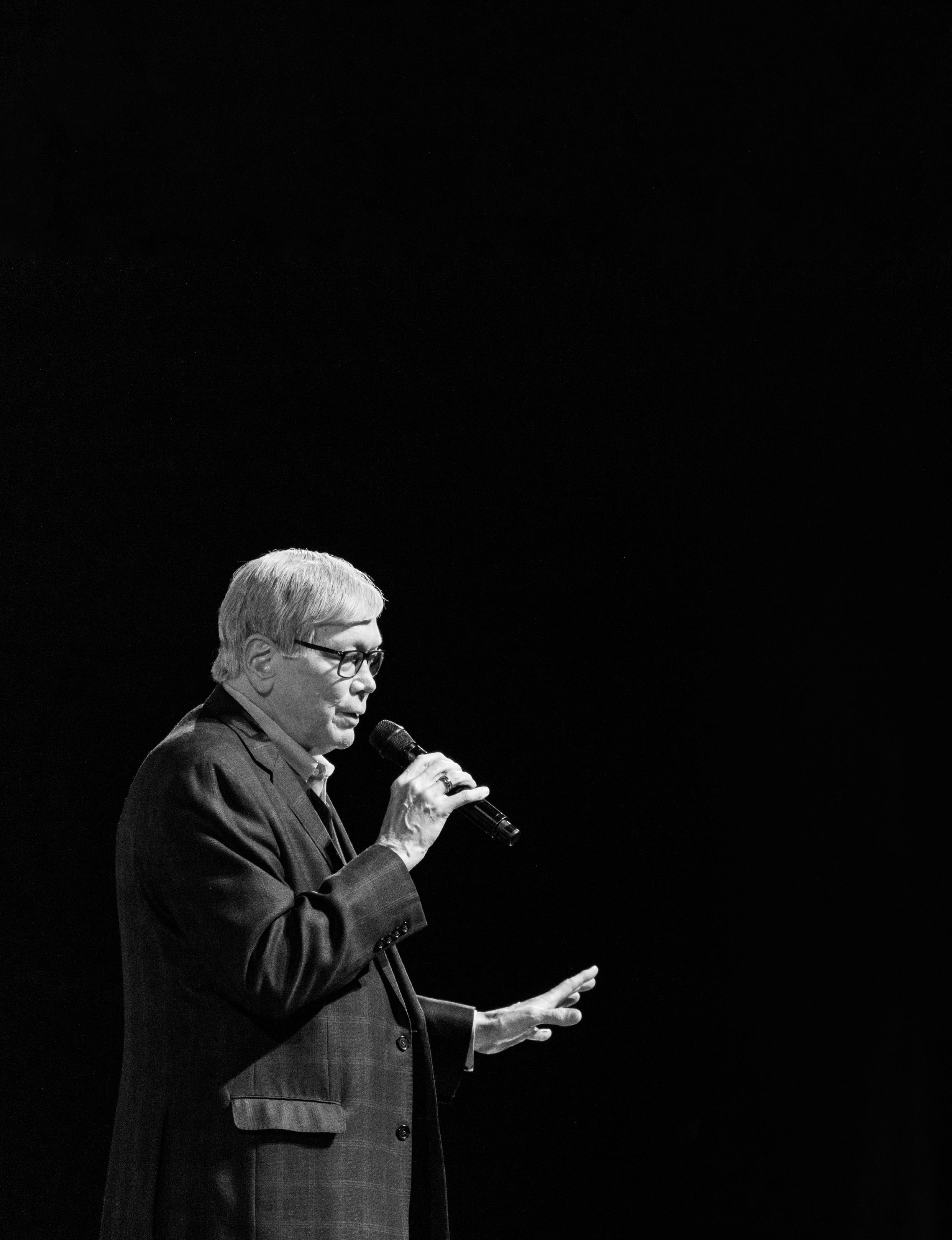
Dr. Hindson was a mentor, colleague, and friend for many. He was the gatekeeper for the School of Divinity’s legacy of excellence, and he faithfully guarded its theological integrity. He stood in the gap while the School of Divinity navigated both exciting opportunities and difficult decisions, and he has left a legacy of faithfulness for all of us to follow.
Dr. Ed Hindson helped steer the creation and vision of this journal, and his leadership will be deeply missed by the editorial staff and the entire School of Divinity. We will, however, endeavor to carry on the work and legacy he spent his life safeguarding.
Written by: Troy W. Temple Dean, Professor of Theology and Family Ministries John W. Rawlings School of Divinity, Liberty University
Edward E. Hindson Dean Emeritus and Distinguished Professor of Religion John W. Rawlings School of Divinity, Liberty University
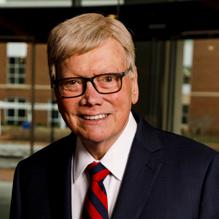
FRUITFUL FAITH IN THE AGE OF DECONVERSION

Deconversion is not a new phenomenon. People have been walking away from Jesus for centuries. In fact, it all began with some of His earliest followers and has continued for nearly 2,000 years. The reasons vary: lack of commitment, unexpected intellectual challenges, moral resistance, ethical concerns, fear of persecution, and a host of other reasons.
The most dramatic and indicting biblical example of deconversion appears in John 6:66-70. Having experienced the miracle of the feeding of the 5,000 (6:1-14), the crowd returned the next day hoping for more of the same. When Jesus told them, “I am the bread of life” (v. 36), they grumbled (v. 41). They missed the whole point that the miracle was a “sign” that Jesus alone could fill their empty hearts and souls. Knowing they were grumbling, Jesus asked, “Do you take offense at this?” (v. 61). Here is a key to understanding why some professing believers walk away. They are offended at the call of true discipleship. They only want Jesus for what He can do for them.
They are not prepared to surrender their lives to Him by genuine and repentant faith. For these people, the issue wasn't cognitive belief, but volition. They didn’t want to follow Him or accept the lifestyle changes such followership would entail.
I will never forget a conversation I had a few years ago with a middle-aged man who had made a profession of faith in the context of a health and wealth Gospel appeal. “Just believe,” they said. “You don’t have to understand it. Pray this simple prayer and you’re in” they insisted. He said, “They told me God loved me and had a wonderful plan for my life. So I thought, ‘Good, I love me and have a wonderful plan for my life too, so if God can help me fulfill my plan, then all the better!’” Over time, he observed many friends walking away from their faith when “God didn’t come through.” He eventually began to read the Gospels in depth and came to understand the seriousness of a genuine faith commitment that resulted in a real
47
Faculty Contribution
born-again experience. In his reflections, he realized that God is not a genie who gives you what you want on demand, but instead He is the Sovereign of the universe whose throne of grace can only be found through the blood of Christ (Hebrews 4:16). The climax in John 6 comes in v. 66-70. “After this many disciples turned back and no longer walked with Him. So Jesus said to the Twelve, ‘Do you want to go away as well?’ Simon Peter answered Him, ‘Lord, to whom shall we go? You have the words of eternal life, and we have believed and come to know that You are the Holy one of God.’” This knowledge is what my acquaintance realized and what led him to true salvation.
Knowledgeable Faith
In the Parable of the Sower (Matthew 13:1-23), Jesus emphasized true faith means knowing and understanding the Gospel. In the story, the seed fell in four places: (1) a path, (2) on rocky ground, (3) among thorns, and (4) upon good soil. The first three failed to produce lasting fruit. The reasons Jesus gave were: “They did not understand” (v. 19), there was “no root” (v. 21), and it was strangled by “the cares of this world” (v. 22). Only the seed that fell on the good soil produced fruit: some 100 fold, some 60, and some 30. But every true believer produced some fruit. No fruit means no life in Jesus’ parables. Every true believer will show some evidence of spiritual transformation. Fruitfulness will vary from one believer to another, but there will always be some fruit. Those who do not produce fruit may temporarily express faith, even with joy and emotion (v. 20), but it does not last.

The key to understanding the parable is Jesus’ own interpretation. He said of the first three soils the results were “unfruitful” (v. 21). Of the seed that fell on the good soil, Jesus said, “This is the one who hears the Word and understands it. He indeed bears fruit” (v. 23). Knowing what we believe and why we believe is vital to true faith. It is true that the call to faith is clear, simple, and basic: “Believe on the Lord Jesus Christ and you will be saved” (Acts 16:31). A thorough biblical theology of faith, however, clearly reveals that it is a faith based on facts not feelings. “Now faith is the assurance of things hoped for, the conviction of things not seen” (Hebrews 11:1).
Repentant Faith
One cannot read the New Testament without encountering the biblical call to repentance. John the Baptist insists, “Repent, for the Kingdom of heaven
is at hand” (Matthew 3:2). Jesus warns, “Unless you repent you will all likewise perish” (Luke 13:5). In His Great Commission to His disciples, Jesus said that "repentance and forgiveness of sins should be proclaimed in His name to all nations” (Luke 24:47). In Peter’s sermon on the Day of Pentecost, he urged the crowd to “repent and be baptized” (Acts 2:38). In Paul’s address to the Ephesian elders, he said he was “teaching in public and from house to house, testifying both to Jews and to Greeks repentance toward God and faith in our Lord Jesus Christ” (Acts 20:21).
Deconversion often results from professions of faith without repentance and commitment. While it is true that the call to “believe” (Greek, pisteuo) appears 98 times in the Gospel of John and the word “repent” (Greek, metanoeo) does not, the concept of repentance is certainly implied. Believers are called to “bear witness” or “testify” (Greek, martureo) of their faith 33 times in John’s Gospel. Jesus calls people not only to believe but to “follow” (Greek, akoloutheo) Him (John 10:4, 5, 27; 13:36, 37).
Active Faith
Jesus’ calls to faith were powerful and irresistible. “Follow Me, and I will make you fishers of men,” He promised Peter and Andrew. “Immediately they left their nets and followed Him” (Matthew 4:1920). Confronting Matthew, the tax collector, at the
tax booth, Jesus simply said, “Follow Me,” and he rose and followed Him, leaving everything behind (Matthew 9:9). Real faith resulted in action. As He closed the Sermon on the Mount, Jesus explained “Everyone then who hears these words of mine and does them will be like a wise man who built his house on the rock … and everyone … who does not do them will be like a foolish man who built his house on the sand” (Matthew 7:24, 26). Notice His emphasis on action. Those who truly believe will do what He commands, indicating that an active faith is real faith. Some of the best biblical advice for those who may be struggling with matters of faith is given by the Apostle Peter. He told believers, who already had faith, to add seven spiritual qualities to their faith. In other words, in addition to believing, Peter said, “Supplement your faith with virtue, knowledge, self-control, steadfastness, godliness, brotherly affection, and love” (2 Peter 1:5-7). The results of these spiritual disciplines increasing in your life will “keep you from being ineffective and unfruitful in the knowledge of our Lord Jesus Christ. For whoever lacks these qualities is so nearsighted that he is blind, having forgotten that he was cleansed from his former sins. Therefore … be all the more diligent … for if you practice these qualities you will never fall” (2 Peter 1:8-10). An active faith is a growing faith. So run the race with confidence, “looking to Jesus, the founder and perfector of our faith” (Hebrews 12:2).

49
FAITH AND THE ACADEMY: ENGAGING THE CULTURE WITH GRACE AND TRUTH
Senior Fellow Contribution
Linda Mintle Professor and Chair, Behavioral Health College of Osteopathic Medicine, Liberty University

DECONVERSION: ARE WE BLAMING THE VICTIM?
Paul Maxwell, best known for blogging on the Desiring God site, joins a list of notable Christians who have abandoned their faith. What is striking about the recent rash of deconversion stories is that each, albeit with different details and experiences, relates a common theme.
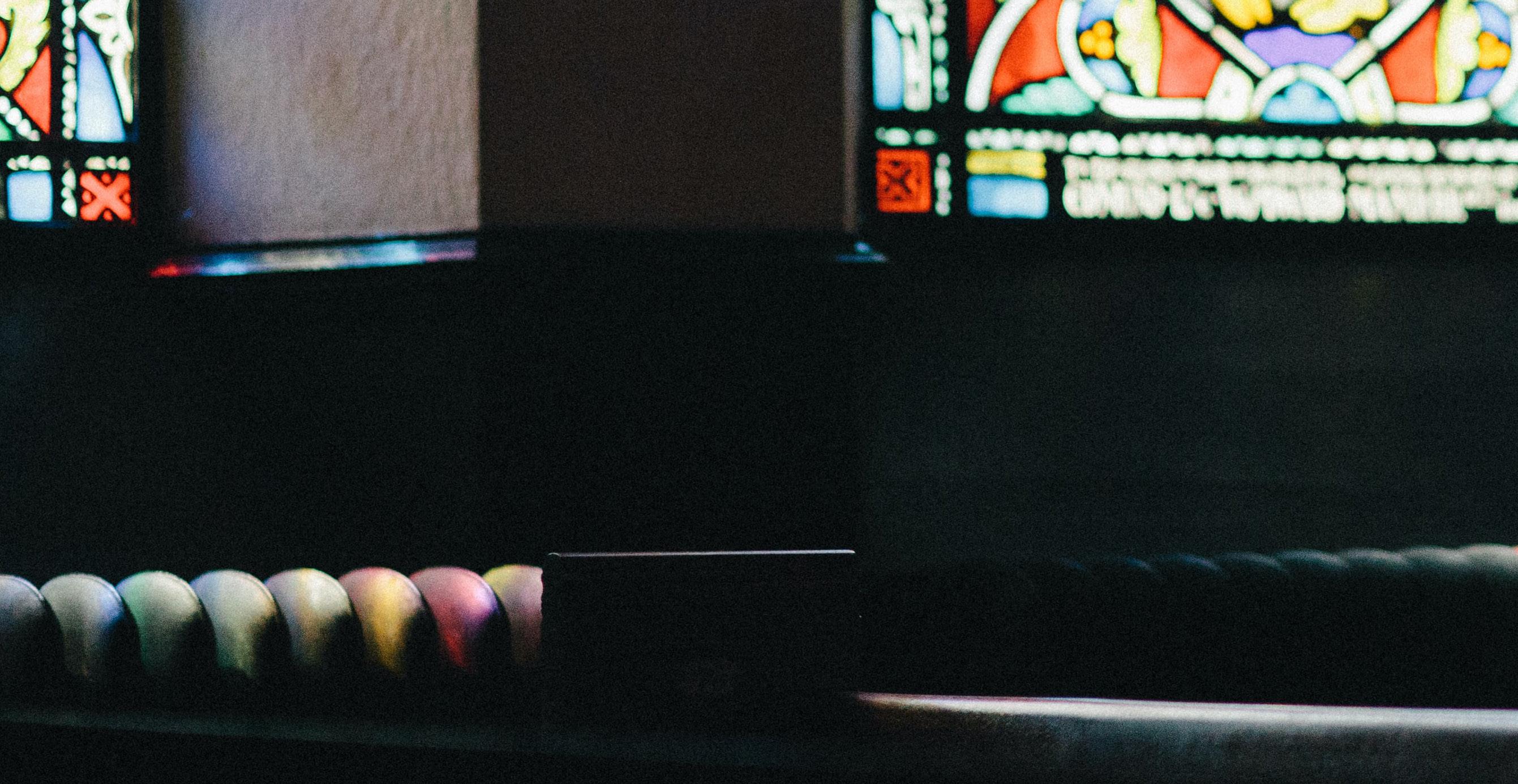
The narrative begins with a person who is engaged and committed to the church and then becomes deeply disappointed. Doubt sets in. Questioning occurs. And ultimately, they leave the faith. Finally, for whatever reason, they feel a deep need to explain their deconversion to those remaining in the Christian faith. The catharsis includes how they were crushed by evangelical dogma and how anxiety and growing tension between faith and culture became unbearable. Consequently, they migrate to a new tribe by denigrating the old and uplifting the new. Steeped in emotional reasoning and cloaked in misapplication of Scripture, they declare their independence as an act of courage. The Truth is replaced by my truth And in this newfound freedom from conviction, they
find happiness. While this story has been repeated for centuries, the power to share this narrative with such broad reach through the tentacles of social media is certainly new.
Deconverters assert their oppression by the Christian faith and experienced newfound happiness leaving it. Post-faith, they are the best they have ever been. One person on Medium.com said they “held on, for far too long, to the faith and community that kept me complacent. It was time to let go, to experience life without my safety net.”1 Complacent? When was Jesus ever complacent? And what follower of The Way in the first century enjoyed the social and cultural protections of a safety net? All but one of the disciples were martyred for their faith. But this is her truth.
The move away from Truth has been a theme of secular culture for years and actually has occurred since the serpent lied to Eve and she bought it. More recently, the modern philosopher Oprah encourages
50
us all to find our truth, relative and subjective though it be. No longer, apparently, is there Truth with a capital T. Claim your truth and you will now be free to make the rules and live accordingly. It is this step of self-determination that ostensibly leads to your own personal nirvana.
Happiness seems to be a primary goal of deconversion. Americans are preoccupied with the idea that we deserve happiness; at least that is what ambitious marketers tell us. The Bible talks about joy, peace, contentment, and does reference happiness. But happiness has never been the benchmark of the life of faith. Christians are to be empowered by the Holy Spirit to do the work God calls us to do. However, American Christianity seems to have lost that focus. It’s all about happiness, both in and out of the Church.
When my brother died, my mom had cancer, and my other brother was in a coma, I was not happy. When the culture mocks my faith, I’m not happy. When I stand up for my convictions, even though Jesus warned me that I would be hated for this, well, none of that makes me happy either. When I am unhappy, where do I turn? A growing number of people are saying, not the Church.
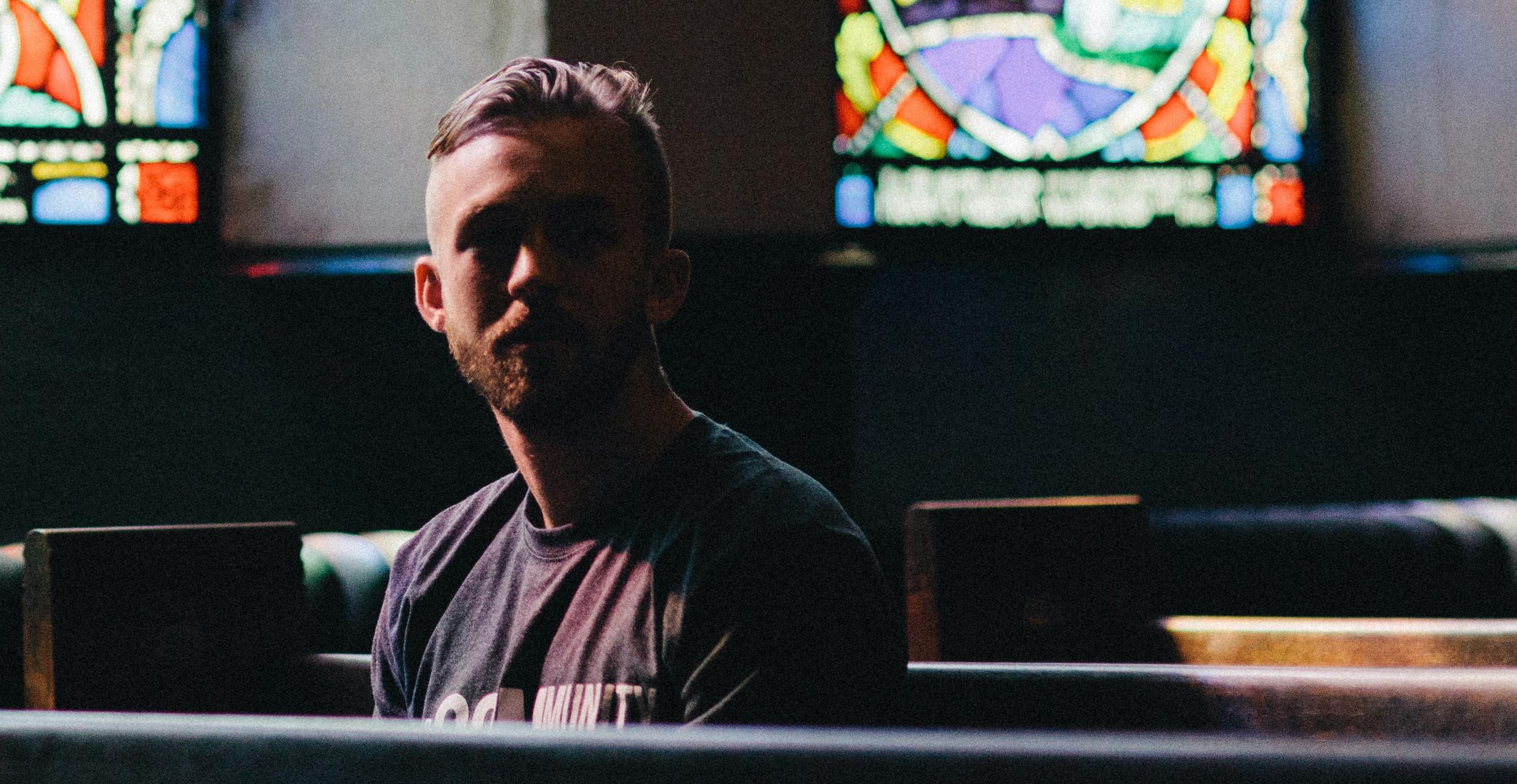
Is it time for an in-house, deep-dive, self-assessment to determine culpability for the exodus? The deconversion slide may well point us to underlying problems at fault in the American church.
Have we allowed mission-drift?
More and more, our churches are falling prey to the culture’s consumer mindset. Megachurches with big programs entertain our youth. They have coffee bars and darkened sanctuaries punctuated with concert lighting. Attendees act more like customers than worshippers. “I can’t go to that church because I don’t like the music.” “I don’t agree with the pastor who made us wear a mask.” We shop for churches like we shop for shoes: try on a dozen and find the one you like. And if that one doesn’t work out, there’s always another just down the block. After all, we need to be happy too.
Are we reaping what we have sown? A consumer driven church just leaves us empty and unsatisfied. It has little to do with mission.
We have been seduced by our myriad gods — wealth, popularity, fame, entertainment. Distractions of all kinds provide momentary happiness. These deities make you feel good. While not visible idols in the American church, many have found their way into our hearts. Churches have become big businesses rather than houses of worship. Services look more like media productions and performances with hipster clothing, name dropping, and self-importance. It's all designed to hype up emotions and make the seeker feel comfortable. Sin is not discussed. Messages are more opinion than Scripture. Basically, the culture has invaded the sacred space and has engendered
51
FAITH AND THE ACADEMY:
THE CULTURE
AND TRUTH
ENGAGING
WITH GRACE
compromise on basic doctrines of the Christian faith. Many people don't really know what the Bible says nor how a biblical lens should inform their daily lives. Like contemporary marriage, when the dark night of the soul comes, they leave. It wasn’t what they bargained for — they just want to be happy.
True followers of Christ believe in Truth — not my truth, your truth, or any of the current cultural versions. We don’t reason with emotions. We don’t adapt biblical truth to fit culture think. Yet when we embrace these missteps, the inevitable result is that the Church compromises her creedal doctrines. A compromised church loses her way and, along the downward pathway, her audience. People smell inauthenticity and weakness. We have made the fatal marketing error of believing our own press. No wonder people leave their faith and then feel relieved.
Is the church selling platitudes?
When people face hardship and difficulties, does the contemporary church offer quick and easy solutions or real help? Too often lately, it seems we’ve preached easy platitudes that miss the mark of our realities. Given my experiences with loss, I almost walked away from my faith when no one could help me understand suffering. I just knew that my reality wasn’t lining up with what I was told I should be feeling. Had it not been for voices like Philip Yancey’s, it would have been easy to give up on religion. Actually, more often, it was secular people who provided me a safe space to talk about loss, not the Church. When I looked to the Church for answers, I got platitudes and a lot of well-meaning people who responded with bad theology. Yancey’s voice, along with a very few others, gave me permission to doubt, to feel bad, to be angry with God, to be unhappy; all of which eventually encouraged me and reenergized my faith. Rather than selling American Christianity as the path to prosperity and happiness, why not tell the truth? Let’s be real. Christianity is supposed to address the tough questions in life. Are easily sold platitudes a reason some are leaving the Church? After all, everyone is searching for more authenticity.
Where is the church when it comes to injustice?
This is not a happy time in our culture — a pandemic, racial unrest, an uptick of crime and violence. How is the Church engaging in these social problems?
Some in the deconversion movement are angry at the church for failing to engage in meaningful ways. They
have a valid point. When the Church doesn’t respond to social problems or speak up for the oppressed, we aren’t behaving like the Church. We should be leaders for biblical justice, not handing over the conversation to those who cannot speak theologically, authoritatively, or eschatologically to the coming justice that will rectify all injustice.
The ongoing struggle with racism is a good example in terms of justice and social engagement. Many in the church have been slow to respond to this centuriesold problem of sin. In Luke 9, Jesus tackles racism head on. He and His disciples begin their journey to Jerusalem where He would fulfill His destiny on the cross. The Rabbi decided to go through Samaria. He sent messengers ahead to prepare the way. When they entered this despised city, they were not welcomed. Why? Racism. Jews hated the Samaritans. Samaritans hated the Jews. Cultural and racial rejection readily became hostility. James and John were upset at the prejudice they felt and wanted to retaliate. They asked Jesus if He wanted them to call down fire from heaven and consume these people. Basically, they urged Jesus to instigate rioting and burning in the streets. Sound familiar? Jesus knew the state of their hearts and the long-simmering hatred between these two ethnic groups. He rebuked them, “You do not know what manner of spirit you are of.” These words of Jesus are important. What manner of spirit are we of? Is it the spirit of this age or the Holy Spirit?
Are we dividing or uniting?
When we do engage, we tend to operate with a “we-they” mentality that fuels a vision of life where we are in a terrestrial war rather than a spiritual war (Ephesians 6). We are witnessing the corrosive power of this divisive spirit that prompts people to leave the established church. Fighting over masks and vaccines, dividing over political affiliation, and employing cancel culture tactics on those whose opinions differ from our own borrows tactics not from Christ but from “the world” which we claim we do not serve. Our actions, however, should be evaluated closely as we consider which tree bears which fruit and how our fruits measure up to these exemplars. When the atmosphere inside the Church is the same as the atmosphere outside the Church, we have a problem. In John 17, Jesus prayed we would be one. Where is Christ’s united Church?
Furthermore, today’s worship of science and intellect is also dividing the Church. I affirm higher education and the pursuit of scientific understanding. I have
52
spent my life as a student and professor. But we need to consider whether our theological pursuits are intellectual or both intellectual and spiritual. Christians can walk powerfully in the Spirit while effectively using their brains. These two things should operate in tandem. You can be a scientist and have faith. This bifurcation of science and faith is unfounded as Professor Alister McGrath at Oxford University so eloquently discusses in his book, The Dawkins Delusion. 2 Study Scripture and know your craft, but stay humble and dependent on the power of God to direct your life. The Apostle Paul is a good example of an intellectual who operated in the power of the Spirit. This false dichotomy results in division.
Have we lost the power?
In Luke 24, Jesus commissions his disciples. He tells them to go and make disciples of all nations. But before they do, they are to wait for the power that will come upon them. Without the power of the Holy Spirit, the Helper, they cannot accomplish the mission. They need Holy Spirit power to do what will be required and to stay the course. Jesus knows their human tendency to depend on themselves and act in their own power. He knows that if they go off mission, Christianity will be a bust. Have we lost our humility and dependence on the Lord? Are we so self-sufficient and complacent that we lack any urgency for revival?
With no power, nothing much changes. The hype doesn’t match reality. People don’t get needs met. They struggle with depression, anxiety, and lack God’s power to be victorious over sin and struggle. Churches are tempted to operate like businesses with all the promises of success and fulfillment. But this selfhelp model leaves congregants empty and spiritually unfulfilled. And when you don’t get what is being sold from the platform, deconversion just makes sense.
This often results in leading people to explore other answers to the great questions of life. In this context, Buddhism becomes attractive. For here, there is no sin, no God, just a self-evolution to a higher state. This dogma fits the mantra of the world where self is the highest authority for finding paths to peace, contentment, and happiness. The intellectual Christian meanders through world religions and concludes that they must have equal value. There is no shame, no sin, no reason to feel bad. Thus, we see the increasingly popular “none” status on religious affiliation surveys.

The question is legitimate. Did the deconverter ever truly experience the reality of the Holy Spirit? It’s hard to imagine. God’s power transforms. If Christianity is reduced to an intellectual assent with no power, it is empty. Jesus was quite clear. You need the power to do the work.
My goal is to challenge those in the American church to consider our culpability in preaching a different gospel. Paul is clear that any (be it an Angel or apostle) that preaches a different gospel — they should be accursed. What is the gospel we preach to our neighbors and to the world? Is it ear-tickling and vague platitudes with hollow entertainment? Is it a gospel devoid of the grace we daily need ourselves? Is it a gospel that looks more like the pharisees or Paul?
The Church needs to awaken from its apathy and complacency and become a community that doesn’t ignore the very real problems people face. The Church needs to stop compromising out of fear of losing people. Instead, it should very clearly, lovingly, and honestly admit our need for a Savior inviting others to join with us in the following of Christ as imperfect sinners.
When a person comes into the Church and experiences unity instead of division, love instead of hate, sacrificial service to others instead of selfishness, acceptance instead of judgment, and joy instead of happiness, they will not deconvert. It will be real, powerful, and transformative for both them and the culture.
The pandemic has unmasked our spiritual malaise. It uncovered root problems in the American church that have become cancerous. When churches were closed, people discovered they could live comfortably without
a church community. Their problems didn’t go away. Actually fear, anxiety, depression, suicide, overdoses, substance abuse, violence in the home, hatred, and more, worsened. But sadly, many people didn’t see the church as a solution to either address these problems or bring real change.
Much of the contemporary church has lacked power for years. And recently, it was seduced by political power, deeply dividing the church at large. Yet again, let’s look to Jesus. He didn’t come to earth to overthrow the seats of political power. He presented a radical faith that transformed the lives of those He touched. He sent the Helper to continue the work. If we learn anything from deconversion, it’s time to activate the power and become the Church Christ intended. Then, we will see revival and a return to the true mission of the Church.
If we simply write off people who deconvert, we blame the victim. The Church needs a reset to its original mission and vision. We are culpable. We’ve lost our way and mission. We’ve failed to engage the culture in a loving way and have done little to transform it. Years ago, Steve Camp wrote a song quoting the Apostle Peter (I Peter 4:17): “Judgement begins in the House of the Lord.” Perhaps it is time to look inward and take responsibility for our part in the deconversion stories.
Kelsey Ogbewe, “The Day I Left Christianity,” Medium (ExCommunications, Nov. 4, 2020), https://medium.com/ excommunications/the-day-i-left-christianity-b598666ae5a2.
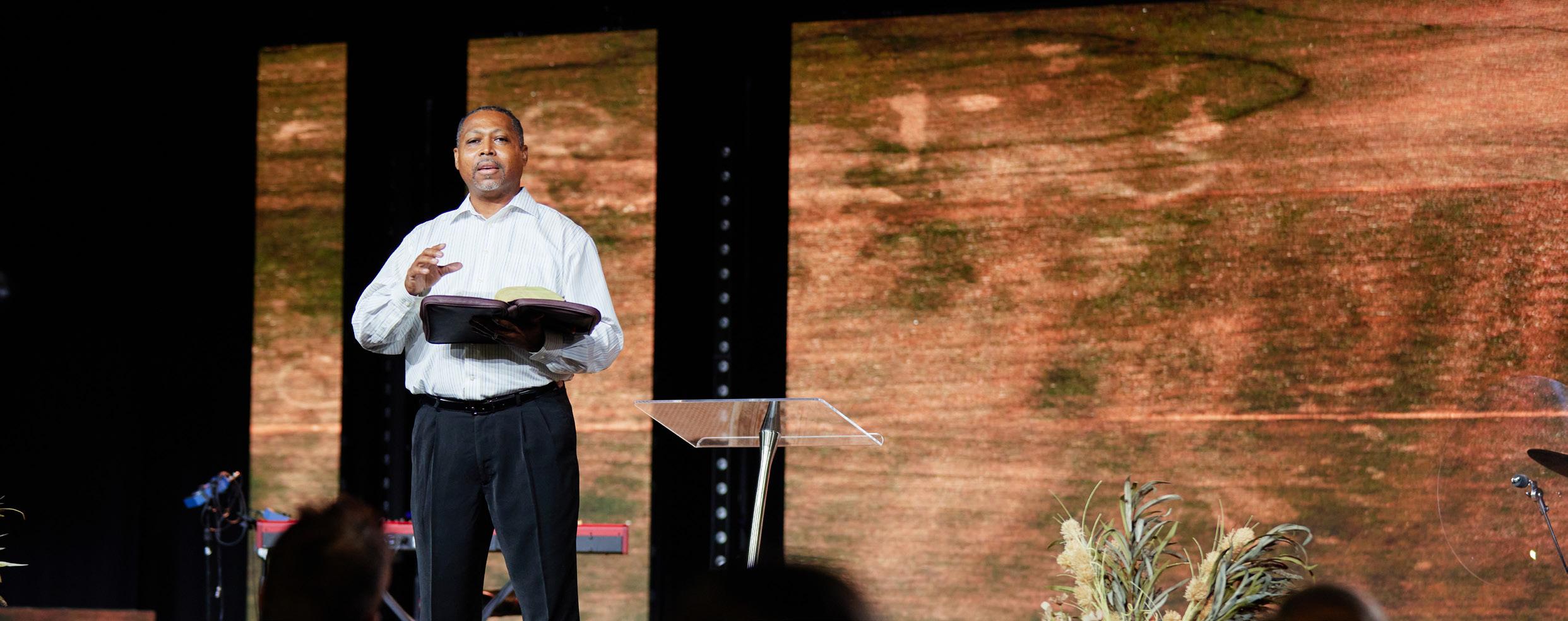
54
1Alister McGrath, "The Dawkins Delusion? Atheist Fundamentalism and the Denial of the Divine" (Downers Grove, IL: IVP Books, 2010).
Bernard J. Mauser Instructor of Philosophy College of Arts & Sciences, Liberty University
FACULTY INSTRUMENTALITY FOR DEFENDING THE FAITH: ENCOURAGEMENT AGAINST THE PHILOSOPHICAL AND PRAGMATIC FOUNDATIONS FOR “DECONVERSION”
Know your audience. This is a key insight for teaching and preaching, and it extends to every area where we interact with others. The students in our classrooms come from a variety of different backgrounds. Although most of our students identify as Christians, among them are those who do not. As Christian professors, we strive to build truths about reality from our different fields alongside a robust biblical explanation in our areas of expertise.
Certainly, as Christian faculty, our goal is not only to equip our students in the areas we teach, but to help build them up in their faith if they are a Christian, and to nudge them towards Christianity if they are not. Each of us has unique insights in how to best do this within the contexts of our own particular disciplines. We must not lose sight that things have changed even in the last ten years of higher education.
Growing up in the late 20th century, many in this professorial generation found ourselves immersed in the worldview of modernism. There was an emphasis on reason, logic, and science. For most of us, science was the most reliable way to gain information about the world. We also believed that some things were true, and anything opposed to the truth was false.
Allan Bloom sounded a warning in 1987 about a new generation of students coming through the University of Chicago in his book The Closing of the American Mind: How Higher Education Has Failed Democracy and Impoverished the Souls of Today’s Students. In this philosophical work, which to the surprise of many became a best-seller, Bloom argues that the majority of his students are buying into relativism. He writes,
“There is one thing a professor can be absolutely certain of: almost every student entering the university believes, or says he believes, that truth is relative.”1 This statement indicated the shift that was being experienced across American universities in the move from the modernist mindset and emphasis on truth and knowledge, to the postmodern mindset away from these areas.
What Is "Deconversion"?
If you were to ask the question of what deconversion is to our students (or our churches), it would probably entail someone falling away from the faith. In the simplest terms, it is the process of an individual or community turning from an initial belief to an alternate belief. Professor Heinz Streib identifies five characteristics of deconversion. He lists these as:
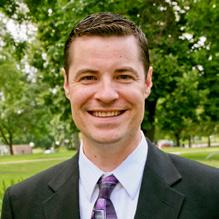
1. Loss of specific religious experiences
2. Intellectual doubt, denial, or disagreement with specific beliefs
3. Moral criticism
4. Emotional suffering
5. Disaffiliation from the community
It is noteworthy that within these characteristics there are those related to the truth claims of Christianity as well as those related to claims regarding Christianity’s goodness and beauty. This article will focus particularly on deconversion as it relates to the truth claims and the philosophical underpinnings that often lead to religious doubt and the eventual turn from faith.
55
Faculty Contribution
The Philosophical Background for Societal Deconversion
Today there are many critical influences leading away from Christianity, but one leg of this threelegged stool is the philosophical objections rooted in alternative explanations of humanity and history. These worldviews tend to come from rejecting 1) the natures of things (a view known as nominalism), 2) our ability to know things (agnosticism), 3) language as an accurate reflection of reality (conventionalism), and 4) the universal moral standards (embracing moral relativism). Easy evidence of these is seen in the cultural Marxism which has embodied and proponed these philosophies as alternatives to the true love of wisdom (i.e., philosophy which is from the root words phileo = love and sophia = wisdom, c.f., the fear of God is the beginning of wisdom, Proverbs 1:7).
In 1923, a group of scholars in Frankfurt, Germany, started what became known as the Frankfurt School. These men were neo-Marxists who rejected certain tenets of Marxism, such as the inevitable demise of capitalism from economic determinism. Yet they attempted to find a more strategic way to change the power structures of society in order to realize Marxist goals through culture. Their idea was to infiltrate the areas of the social sciences to promote Marxist ideology and critical theory. In 1933, this group fled from Hitler’s Germany and landed at Columbia University in New York. This is where the group expanded their teachings, impacting deeply the realms of sociology and psychology.
At the same time as the formation of the Frankfurt school, Antonio Gramsci, another Marxist who aligned with this strategy, decided to go after the robes of Europe in order to create an alignment with Marxist ideals. Those who wore robes were the judges, the clergy, the professors, and politicians. They maintained the hegemonic power. His basis was that if you won the minds of these people to support cultural Marxism, the conclusion is inevitable.
Both groups emphasized that socialism would most effectively come about through capturing the culture, not violent revolution. They also emphasized the necessity for overcoming the dominant culture — referred to as hegemony — and replacing it. The reason for replacing the hegemony was that this was the very thing that kept the dominant group in power.
This means the goal of the critical theorist, which gave rise to postmodern philosophy, was to move society
away from the dominant cultural beliefs and values in order to promote a new version of the Marxist ideal. Rational thinking, the scientific method, traditional marriage, and Christian beliefs were and continue to be the targets. This task was to be a massive deconversion of the entire society.
The dominant ideas that this worldview has sought to bring into question touched on the areas of metaphysics, epistemology, and ethics. For metaphysics, Christians classically held there was a nature in things that distinguished them from others, allowing them to function as they do. Also, mankind knows things about reality. When we talk to each other our language actually refers to real things. What is more, in our communication with each other we could learn the truth of things and find correction. To top it all off, there was a general belief that some actions were really good and others were truly evil. It was clear that we could judge between them. All of these pointed to the fact that humans are of their very nature rational beings. Humans are not mindless beasts, but each has both a mind and will.
These are the very areas postmodern philosophy seeks to undermine. It is seen explicitly as critical theory, and the ‘tools’ of critical theorists have taken hold in many of our respective disciplines. It is why reason, logic, and truth are under attack in our classrooms and in our society. It is safe to say that cultural Marxism has succeeded in becoming a dominant view in all the areas Gramsci mentioned (i.e., the robes). Much of the world — the academies, courts, and politicians — has embraced a portion of the Marxist agenda.
The Philosophical Background for Personal Deconversion
There are various reasons that influence people to fall away from a faith tradition. It is often heartbreaking to many of us to hear of some of our favorite authors, pastors, or musical artists rejecting Christianity. Given the influence that some of these people have had in the lives of so many Christians, it is especially concerning when they lead others away too.
Brad Pitt, for example, was raised as a Baptist. In a 2007 interview he told Parade Magazine, “I’d go to Christian revivals and be moved by the Holy Spirit, and I’d go to rock concerts and feel the same fervor. Then I’d be told, ‘That’s the devil’s music! Don’t partake in that! I wanted to experience things religion
56
said not to experience.’”2 Although he expresses that there is some good to religion, he identifies himself as an atheist.
More recently and closer to home, former Liberty student and DC Talk member Kevin Max has shared on social media, “I’ve been deconstructing/ reconstructing/progressing/whatever you wish to call it for decades. I’ve been in the outsider/misfit/seeker club for a long time now. … Thank you for welcoming me in, but I’ve always been here. … Hello, my name is Kevin Max, and I’m an ex-vangelical.” Max continues in saying that he still believes in God, but now believes in the cosmic Christ, and doubts some of the things that the Bible says about God.
There are some significant reasons that those who leave the religion of their youth give for why they do so. Consider the following and compare these to the five aspects of deconversion Professor Strieb documented.

First, many who fall into the camp of deconversion explain that they had an experience that corroborated their faith. As Brad Pitt explained, he came to the conclusion that his experiences at Christian revivals and at rock concerts were the same. There tends to be an overemphasis on the feeling side of conversion in American churches. What happens when you no longer have the feeling or have a feeling from an opposite worldview? If your faith is based only on emotions, this remains shaky grounds upon which to stand. This matches Strieb’s explanation of having a loss of religious experience as part of deconversion.
Second, there is among those who fall away a dissatisfaction with having questions about their Christian life answered. After their search, those vulnerable discover answers from the culture rather than from God’s revelation. This causes them to first doubt the truthfulness of the things the Bible teaches. It then leads down a slippery slope to doubting many areas of Christian doctrine. In these cases, we find the slippery slope argument in force. Famous New Testament scholar and atheist Bart Ehrman openly shares his path away from the church. He had a passion for studying God’s word and belonged to an evangelical church in high school. Because of the importance of studying the Bible, it led him to continue in this pursuit at Moody Bible Institute, Wheaton College, and finally Princeton Theological Seminary. At Princeton, he first began by rejecting the inerrancy of Scripture and found it was only a short distance from there to a full rejection of faith he once claimed as his own.
Third, as many leave home they are confronted with evil and suffering. How can there be so much suffering and evil if there is a good God? They may also wonder if God exists, as His existence seems incompatible with evil. This is a moral criticism offered by many as a reason for turning from faith.
The fourth comes in two parts. For some, they may have genuinely kind and enjoyable friends and family members who embrace a lifestyle contrary to Scripture. Wrestling through the biblical statements about the status of the souls of these individuals can bring great emotional turmoil and crossroads. Generally, one path accepts the sins and questions the statements of Scripture while the other has to hold seriously the weight of sin in the eyes of God. The second part of this fourth observation is the recognition that the sins of others often creep into the lives of the innocent. Those who have faced abuse, injustice, harm, neglect, and suffering foisted upon them by the sins of others often wrestle with the reality of the goodness of Christianity — especially if this sin was imbibed by a Christian.
Lastly, disaffiliation from their religious community may happen when they see some inconsistency or moral failing in said community that directly goes against their beliefs and values (e.g., pastoral abuse). This may also happen when, once they have left their community and experience other ideas that they had not been exposed to before, are unable to make sense of that within their original religious framework (e.g., young earth creationism and evolution). In one sense, these become barriers that our students cannot get around. While these scenarios are horrific or unfortunate, they do not invalidate the truth of Christianity.
Each of these may be a stand-alone experience that leads to falling away, but often they occur together.

How can Faculty Engage Students Wrestling with Deconversion
As intellectual Christians, professors have been given a unique gift from God. There are manifold
58
opportunities to build meaningful relationships with our students. Beyond this, let’s look at two ways to impact our students using our talents.
First, we can provide a depth of understanding and insight into many of the questions that cause students to stumble. Never discount the simple act of active listening. Our classrooms can be places where students can reach us to ask about any of their struggles with the faith. There is a large network of resources in this contemporary age. Even if we are asked questions outside our area of expertise, professors can reach out to others in our Christian community who have those answers. Doing this can relieve the student’s burden in not having questions answered. For example, instructors can help them work through their struggles with the problem of evil and the fact of a good God. We can also explain how it is that God’s design for living asks us to live in conformity to our nature (that is, as rational beings). When a person starts acting against reason, it is not only destructive, but it also hinders us from true happiness that only comes from God. On this point, I would challenge you with a simple reflective question. When was the last time you read something outside your discipline that specifically targets the types of questions our students come to campus with? I’d expect psychology professors to stay up-to-date on the latest books related to biblical and theological reflections on sexuality, but what about professors of aviation, literature, or FACS? I’d also expect professors in the School of Divinity to be reading the best on textual criticism. Have any of our professors of business, law, and science read recently in this field? This question is not intended to bring guilt or shame but to challenge each professor who is reading to engage in the best of the available material, for you are often the first to know the real questions weighing on the hearts of our students.
Second, the professor can emphasize in each class that the reason for believing in Christianity is because it is true. Jesus really lived, died, and was resurrected from the dead. The basis for our faith is not feelings, but facts. Feelings were created by God as part of His creativity for our good, but they are not omniscient. To reinforce this, each instructor can point out that Scriptural and practical reality of our deceptive hearts (Jeremiah 17:9). Emotions are imperfect indicators as to whether something is true. The evidence points to the reality that Christianity is true. This reality can help us all when faced with trials of many kinds. Due to the results of the Fall, all of us undergo pain, suffering, and loss. Despite whatever feelings of grief there can be, our faith is true because it corresponds
to reality. We can rest in this truth independent of anything that tries to lead us away.
It is not without reason that all Christians are admonished to love God with all of our minds. The general instruction believers have in how to use our minds includes that we are “to demolish arguments and every thought that sets itself up against the knowledge of God” (2 Corinthians 10:5). All followers of Jesus should “always be ready to give an answer for the hope that we have with gentleness and respect” (1 Peter 3:15). Along these lines, one of the requirements for elders of the church is to be able to refute those who oppose sound doctrine (Titus 1:9). Who of us that have been given this great intellectual gift would dare not to equip the saints to carry out these instructions?
I am reminded here of the charge C.S. Lewis offered to his students during World War II. His students wondered why they were at the university studying when their brothers and friends were preparing to fight Nazis. In his sermon “Learning in War-Time,” Lewis said:
To be ignorant and simple now — not to be able to meet the enemies on their own ground — would be to throw down our weapons, and to betray our uneducated brethren who have, under God, no defense but us against the intellectual attacks of the heathen. Good philosophy must exist, if for no other reason, because bad philosophy needs to be answered. The cool intellect must work not only against cool intellect on the other side, but against the muddy heathen mysticisms which deny intellect altogether.”3
We stand as God’s chosen instruments, as defenders of the faith for our uneducated brethren, and have the opportunity to provide to our students reasons to see the truth of Christianity in our reasoning and the beauty and goodness of it in our lives.
59
1 Allan Bloom, The Closing of the American Mind, Reissue ed. (New York: Simon & Schuster, 2012), 25-26.
2 Heinz Streib, “Deconversion,” The Oxford Handbook of Religious Conversion, (Oxford: Oxford University Press, 2014), 272.
3 C.S. Lewis, Learning in War-Time, A Sermon Preached in the Church of St. Mary the Virgin, Oxford, 1939: 5.
FAITH AND THE ACADEMY: ENGAGING THE CULTURE WITH GRACE AND TRUTH
The Many Forms of Stewardship (and How to Live Them)
Tim Yonts, Instructor of Ethics College of Arts & Sciences, Liberty University Stacie Rhodes, Associate Professor School of Business, Liberty University
Christians are often plagued with guilt over the biblical responsibility of “doing justice and loving mercy” (Micah 6:8). Endless debates over how Christians should fulfill this biblical mandate go on year after year. What does it mean to be a just person (i.e., righteous, virtuous, and holy)? What does financial stewardship look like, both biblically and practically? This article offers its readers a way to understand what biblical justice looks like for Christian individuals by noting a few biblical principles of virtuous stewardship and their practical applications in the area of financial literacy.
Three Biblical Principles of Virtuous Stewardship
Theological Principle One: Dominion
The first biblical principle of virtuous stewardship we see in Scripture is the principle of dominion. Dominion derives from our nature as creatures created in the image of God. As image bearers, we are responsible for exercising dominion over the earth (Genesis 1:28), but a key aspect of our dominion mandate is the economic dimension, and we see this dimension throughout Scripture.
Scripture commands us to sustain ourselves through work (1 Thessalonians 3:10-12). It says that laziness is shameful, irrational, and invites disaster (Proverbs 6:6-8; 22:13; 24:33). In contrast, Scripture says that diligence and hard work are honorable, rational, and generally produce stability in one’s life (Proverbs 10:5; 21:5-7; 27:23-27; 31:13-16). Scripture also commends thrift and financial planning (Proverbs 21:20), as well as the ability to leave an inheritance for one’s family (Proverbs 13:22). Moreover, Scripture instructs us to be wise about the usefulness of money (Proverbs 10:15; 24:3-6) and how to view it with sobriety
(Psalms 62:10; Proverbs 23:5; Matthew 6:24-33).
Exercising financial wisdom is one way of having dominion over the earth. Financial wisdom allows us to move from positions of economic dependence to positions of economic empowerment. As image bearers of God, we have an ethical responsibility to understand how labor, money, and savings work, not simply to prevent poverty in our own lives but also to alleviate it in the lives of others. Thus, possessing the knowledge and ability to meet not only our needs but also the needs of others is an essential quality of virtuous stewardship.
Financial Literacy Application: Cut Costs, Save Money, and Invest Wisely
There is incredible freedom that accompanies the belief that God owns all things and we are mere stewards of His provision. However, our nature compels us to latch on to the dominion concept and overlook the stewardship principle. Just as our dominion was handed to us from our Creator, so our resources were distributed from the same provisional Father. It is not enough to know this truth — we must tease out the practical application in regards to our finances.
As we wrestle with what this means for us, the following is the underlying question that habitually surfaces when discussing personal wealth: how much is enough? How do we balance the responsibilities that dominion requires without falling into the trap of trying to serve both God and money (Matthew 6:24)? The answer is rather simple yet profoundly difficult to embrace: spend less than you earn and do it for a long time.
This principle requires intentionality in discovering personal spending habits while curbing instinctive purchases. The concept of earning money incrementally to foster growth is grounded in Scripture
60 INTERDISCIPLINARY
ESSAYS
(Proverbs 13:11), yet it seems to be a novel concept to our culture peppered with messages of instant gratification. Thus, we realize success in financial stewardship only when our beliefs about money and our spending habits are transformed, as evidenced through the discipline accounting for all received and all spent with the intent to live within our means.
Theological Principle Two: Compassion
A second principle of virtuous stewardship is compassion. Being a follower of Jesus means that we conform our whole lives — including our economic lives — to God’s will in response to the grace and mercy shown to us. Among other things, this includes showing compassion to others economically. For when we are compassionate economically, we display gratitude toward God and put into practice the righteousness we possess in Christ (James 1:27; 1 John 3:16-24).1
Yet, we must hold in tension the responsibility of compassion with the responsibility of financial wisdom (2 Thessalonians 3:10; 1 Corinthians 16:2; Ephesians 4:28).2 Without compassion, we cannot live out our faith, but without financial wisdom and empowerment, we will not be in a position to

exercise compassion for very long. So it seems we must combine the two principles into a one concept. Theologian John Schneider calls this combination, “compassionate dominion.”3 Schneider explains that compassionate dominion is a unique form of stewardship that plays a special role in God’s Kingdom program. This role is held by Christians who possess material abundance because they uniquely have the ability to economically empower the lives of the less fortunate. The potential impact of virtuous stewardship on the part of the wealthy is incredible. Through compassionate dominion, wealthy Christians partner with God in opening peoples’ hearts to hearing the Gospel and inviting them into His Kingdom.4 Compassionate dominion makes the church into an economic refuge for the oppressed, exploited, and poor.5 It also brings joy to the giver (Acts 20:35; 2 Corinthians 9:6-8), and it advances the Gospel message (Acts 2:47).
However, contrary to many social pressures of contemporary society, compassionate dominion does not entail a legalistic burden on those who have material abundance. It is not sinful to enjoy material things, and nowhere in Scripture are Christians mandated to divest themselves of all material abundance. Virtuous stewardship is not a guilt-based,
61
FAITH AND
AND TRUTH
THE ACADEMY: ENGAGING THE CULTURE WITH GRACE
utilitarian obligation to meet every single need that exists, nor is it a compulsory poverty-gospel.6 Rather, compassionate dominion means that prudence and liberty, not legalism and guilt, govern Christian charity. Virtuous stewardship gives room for the Christian to enjoy material things while governing that enjoyment with the call to serve others.
Financial Literacy Application: Give Generously
A recent study tested the relationship between giving (compassion) and happiness. Two groups were created with one group receiving $5 every day to spend on themselves, while the other group was required to give $5 a day to their charity of choice. The results revealed that the happiness felt by those giving to charity sustained itself over time, while those spending on themselves found their happiness waning.7

This phenomenon is no surprise to believers who embrace the compassion mandate from our Creator. Sacrificial giving was emulated by God in the crucifixion of His Son (John 3:16). Yet it seems the battle between our own self-interest and His commands can tempt us to place economic compassion as the last priority. How do we avoid this temptation? How do we avoid the risk of disobedience and captivity to a materialistic master? By prioritizing our giving commitments prior to funding other expenses or personal pleasures.
consciously work against our sinful nature in this regard, we invite God into the process of financial decision-making, asking for His specific guidance in what material possessions to keep and what to let go.
Theological Principle Three: Divine Delight
The third principle of virtuous stewardship, therefore, is divine delight. Scripture warns against loving the things of the world (1 John 2:15-17) and trying to find joy in worldly possessions. The love of riches, the Bible says, ultimately amounts to idolatry and reveals in us a spirit of greed and ingratitude (Luke 12:15). However, Scripture protects the Christian’s freedom to delight in God’s creation, and by implication this freedom of delight includes the economic fruits of creation. Nowhere in Scripture is wealth condemned or are rich people condemned; rather, Scripture condemns the unjust gain of wealth and the idolatry that often accompanies wealth (Colossians 3:5; 1 Timothy 6:10).8
So, how should we balance this tension between the responsibilities of compassion with the freedom to enjoy material things?
First, we must remember that we can only delight in the things of the earth when we first and foremost delight in God. The Apostle Paul explains that those who are rich in this world should be “rich in good works” by sharing of their abundance (1 Timothy 6:18). By doing so, they take hold of true life in Christ (vs. 19). We see in other passages that a life without God at its center, even a life of material abundance, can only ever amount to emptiness and vanity (Ecclesiastes 5:8-12; 6:7-9). As Joe Rigney explains in The Things of this Earth, only when we set our minds on things above can we then consider what is good and lovely in things below (Philippians 4:4-8).9 “When we love God supremely,” Rigney says, “we are free to love creation as creation (and not as God).”10
By prioritizing generous giving (2 Corinthians 8:1011), we can radically change our position on the stewardship spectrum. This does not mean we all give the same amount. While tithing ten percent may be a starting point for some, it is not the answer for every believer. Moreover, we are not called to wealth or poverty but to surrender. As such, our challenge is to hold our finances in an open hand of surrender, resisting the desire to clench our fists in an effort to hold on to fleeting riches (Proverbs 23:5). When we
Second, our focus on Christ allows us to wish that others in the family of God partake alongside us in the enjoyment of material things. Christians who have material abundance not only have the freedom to delight in them but also have the ability to empower others to do the same. The practice of compassionate dominion should move us to bring that delight into the lives of others as well.11 It allows those of us who have material abundance to live out the economic
62
implications of the Gospel with a life of joy and freedom.
Financial Literacy Application: Avoid Debt and Maintain Margin
When we choose divine delight, we are actually choosing contentment (Hebrews 13:5), but this choice raises a point of tension with our culture. When we adopt a perspective of delighting in what we have been given rather than delighting in what we desire, we can avoid the temptation toward greed and ingratitude over things we think we lack. When we strive to do so, we embrace the discipline of avoiding debt.
The Bible asserts that borrowing is similar to slavery (Proverbs 22:7), and the refusal to pay debts is akin to wickedness and sin (Psalms 37:21). With such strong language, Scripture challenges us to enter a debt wisely and carefully. Practically speaking, debt should only be used only when a few considerations are met: For starters, there should be a repayment plan before signing for debt, and there should be evidence that the economic return is greater than the economic cost. Avoiding debt is not easy, however, unless we possess forethought about unexpected financial burdens and we establish a financial cushion on a consistent basis. Establishing this cushion involves the discipline of creating financial margin (Luke 14:28). Thus, delighting in the things of earth actually requires two practical disciplines simultaneously: debt avoidance and financial margin.
A recent poll found that fewer than 4 of 10 people have $1,000 available for an emergency expense.12 This spells disaster should another economic recession or financial crisis strike the world. An unexpected medical emergency can easily devastate someone who has little margin and great debt. What joy and freedom can be found in fearing the next economic recession or
unexpected expense? Surely, there is a better way. Christians should reject the normative behavior in our society of borrowing money in order to fund needs and desires that we could have otherwise afforded with foresight and financial discipline. We can refuse to accept what culture deems appropriate and press into biblical financial wisdom presented throughout the Gospel.
Thus, virtuous stewardship means that we have biblical permission to enjoy (with gratitude) the blessings of God and to share (as we are able and willing) with those in need. In this way, we fulfill our ethical responsibilities of financial wisdom and genuine compassion.
1 For a discussion on the distinction between justice as righteousness versus justice in other forms, see Ronald H. Nash, Social Justice and the Christian Church (Lima: Academic Renewal Press, 2002), 69–80.
2 Two helpful resources on discerning the “good” and “bad” ways to do charitable work are, Robert Lupton, Toxic Charity: How Churches and Charities Hurt Those They Help and How to Reverse It (New York: Harper Collins, 2011); Steve Corbett and Brian Fikkert, When Helping Hurts: How to Allieviate Poverty without Hurting the Poor. (Chicago: Moody, 2009).
3 See Schneider’s exposition of Acts 2 and the subsequent behavior of rich Christians in the New Testament. John Schneider, Godly Materialism: Rethinking Money and Possessions (Downers Grove: InterVarsity Press, 1994), 165–184.
4 Ibid., 167.
5 Ibid., 168. Schneider explains that Acts 2 is about the rich Christians in the Jerusalem church as well as the poor Christians. Through their giving, the rich Christians of the church identified with the Servant-Lord and with the God of creation and the exodus. They were able to make the church a place where the poor could find relief and liberation from destructive economic forces. This gave the Jerusalem church a powerful witness to the grace of God in Jesus Christ.
6 For examples of this view, see Arthur Gish, The New Left and Christian Radicalism (Grand Rapids: Eerdmans, 1970); Barry Gordon, The Economic Problem in Biblical and Patristic Thought (Leiden: Brill, 1989). The existence of need alone does not mandate that Christians give. This type of thinking produces a guilt-based belief that enjoying any material abundance is sinful, and in the end, it undermines the principle of being financially independent so that we can provide for those in need. Schneider, Godly Materialism: Rethinking Money and Possessions, 171.
7 Dan Parks, “Giving to Charity Creates Sustained Happiness,” The Chronicle of Philanthropy 32:1 (2019): 63.
8 See Ronald H. Nash, Poverty and Wealth: Why Socialism Doesn’t Work (Richardson: Probe Books, 1986), 156–171. Nash explains that the admonition against the rich in the New Testament were directed at those who were exploiting and defrauding the poor.
9 Joe Rigney, The Things of Earth: Treasuring God by Enjoying His Gifts (Wheaton: Crossway, 2015), 103.
10 Ibid., 99.
11 Schneider, Godly Materialism: Rethinking Money and Possessions, 175.
12 Lorie Konish, “Just 39% of Americans could pay for a $1,000 emergency expense,” (Accessed: 9/28/21) https://www.cnbc. com/2021/01/11/just-39percent-of-americans-could-pay-for-a-1000emergency-expense.html.

63 FAITH AND THE ACADEMY: ENGAGING THE CULTURE WITH GRACE AND TRUTH
INTERDISCIPLINARY ESSAYS
Our Marriage of Philosophy and Education
Michael S. Jones, Professor of Interdisciplinary Studies College of Arts & Sciences, Liberty University
Laura E. Jones, Adjunct Professor of Education School of Education, Liberty University
We met as teenagers — new Christians rapidly growing in our faith and wanting to spend our lives serving the Lord. As is true for many college students, however, we both had some difficulty selecting a career path. This was in large part due to our desire to serve God vocationally combined with the lack of a clear calling to a specific vocational ministry. In short, we both wanted to serve the Lord, but we didn’t know how. Eventually, Laura started down the path to become a teacher, while Mike prepared for church ministry. Ministerial studies segued into graduate studies in theology, then philosophy, and then doctoral work in philosophy of religion. Along the way, Mike found that he was more gifted to teach than to pastor — and this is how we both ended up as educators.
Education as Ministry
For many people, the concept of vocational ministry is closely associated with ordination and thus is limited to occupations that are typically reserved for those who are ordained: pastors, professional evangelists, full-time missionaries, and the like. Schoolteachers and university professors are not often viewed as “ministers.” We have found, however, that being a teacher affords a constant supply of opportunities for ministry. Some of these are direct, as when Mike teaches Theological Survey I, a course that introduces students to the systematic study of Christian beliefs on the inspiration and accuracy of the Bible, the existence and nature of God, the deity of Christ, and the person and work of the Holy Spirit. Laura has found direct opportunities to minister when she guides Christian educators in the public and private sectors of education. At other times the opportunities to minister are indirect, such as when Laura shares her research about the educational challenges of marginalized students, thereby demonstrating the need to research and reach all students. Similarly, Mike also has indirect opportunities to minister. For example,
when teaching Introductory Logic, he often uses examples of arguments from his Christian Evidences class to illustrate the proper form of a valid argument. Not only does this explain the lesson in a way that is interesting to his students; it also has the benefit of showing students that there are logical reasons for believing that Christianity is true.
In addition to the ministry opportunities provided by classroom instruction, a vocation in education affords many opportunities for ministry outside of the classroom. Teachers with a heart for ministry develop a rapport with their students that naturally blossoms into ministering to student needs. The range of these opportunities is significant: since Mike teaches, among other things, courses on ethics and apologetics, students often come to him when they are facing moral dilemmas and when they are struggling with their faith. Laura has found opportunities to counsel students who are struggling academically and when they are wrestling with career choices.
Sometimes these counseling sessions take place via email, Zoom, or Microsoft Teams. At other times they take place in an office or someplace else on Liberty’s campus. Since Mike serves as faculty advisor to several clubs on campus, he frequently has opportunities to work with and counsel students while fencing with them, teaching them Brazilian Jiu-jitsu, or engaging with them in philosophical discourse at a Philosophy Club meeting. Laura’s work is primarily with online doctoral students. As a result, her counseling experiences often take place on the phone, as she mentors her students through writing their doctoral dissertations and helps them balance being a student, a spouse, a parent, and an employee all at once.
One of the most enjoyable and rewarding ministry opportunities we have had has been the ability to lead teams of students on international education and ministry trips organized with the help of LU
64
Send. Both of us focused our doctoral dissertations on Romania and have spent extensive time in the country and learning the language. Our academic pursuits as educators and researchers have allowed us to spend summers in Romania on a regular basis. This academic pursuit has naturally led us to have overlapping opportunities in Romanian churches. We have found that our teaching has been a key that has opened the door to ministry both here and abroad.
Christian Philosophy in Education
Just as Laura’s teaching has been enriched by philosophy, Mike’s philosophizing has been enriched by teaching. Many of the students who enroll in his courses have little to no prior exposure to philosophical thinking and no training in formal logic. However, both of these form a valuable part of Christian higher education. Hence, Mike has faced the pragmatic necessity of repackaging the abstract thought and careful nuance of philosophy for a new audience. Doing so has often required the advice of a professional pedagogue, an expert in effective instruction. He would tell you that it is no coincidence that he married a teacher — God’s hand was in it. Laura has often helped him design effective lesson plans, create interactive learning experiences, and think outside of the box in order to motivate, excite, and inspire his students. After all, if the skills of philosophical thinking are important, then it is important to teach them effectively
Marriage Is a Ministry Team
A Christian Philosophy of Education
Laura’s philosophy of education is primarily pragmatic constructivism at its core, where there is a constructivist learning design within a structured learning framework. Philosopher and educator John Dewey pointed out that learners use their previous knowledge to construct new understanding, and therefore the curriculum used needs to be relevant to students’ lives. Students’ learning experiences, and the perception of those experiences, have educational value. Learning is active, social, and contextual. Some aspects of Socratic teaching, which utilizes dialogue and questioning to guide students to finding answers instead of merely providing information, are critical to this constructivist philosophy. Additionally, Laura’s philosophy of education emphasizes the importance of meeting the needs of all students, which involves recognizing and embracing diversity. Differentiated instruction, cultural diversity awareness, and equity of education are important in developing the next generation of global learners and educators. Since the Lord intentionally created a world characterized by great diversity, we need to teach students to respect and cherish that diversity while building on the key foundation of God’s revelation, our ultimate source of knowledge.
We believe that the educational, career, and ministry paths we’ve walked have complemented each other well. Laura has read many a philosophical manuscript, and Mike has proofread dissertation drafts en route to Laura’s Ed.D. We recognize that our marriage is more than our professional lives, but we have married our professional lives for each other’s advancement and benefit and the ministry to which we are called. As we look back upon thirty-five years of marriage, we see several things, two of which are:
1) Education is a ministry of discipleship that gives formal, informal, evangelistic, and missionary opportunities should you keep your eyes open for them, and 2) the truism of Ecclesiastes 4:12 is still true, “A threefold cord is not quickly broken” — just as we walk together, the Lord walks with us, leading us in ministries philosophical, educational, and spiritual, both in the U.S. and abroad.

65
FAITH AND THE ACADEMY: ENGAGING THE CULTURE WITH GRACE AND TRUTH
66
Center for Apologetics & Cultural
Engagement Editorial BOard
Senior Fellows
Ed Hindson
Mark Horstemeyer
Gary Isaacs
Linda Mintle Fellows
Adebukola Adebayo
Joseph Martins
Christopher Misiano
Cara Murphy
Jason Ross
Nathaniel Valle
But [Thomas] said to them, “If I don’t see the mark of the nails in his hands, put my finger into the mark of the nails, and put my hand into his side, I will never believe.” …
Then [Jesus] said to Thomas, “Put your finger here and look at my hands. Reach out your hand and put it into my side. Don’t be faithless, but believe.”
John 20:25, 27
Coming FALL 2023
Faith and the Academy: Engaging Culture with Grace and Truth
“The Good Life: Christianity and a Moral Vision”
Vol. 7, no.2







 Editorial Note Mark D. Allen Professor of Biblical and Theological Studies, Executive Editor, Faith and the Academy, 2018-2021
Editorial Note Mark D. Allen Professor of Biblical and Theological Studies, Executive Editor, Faith and the Academy, 2018-2021
 John W. Rawlings School of Divinity, Liberty University
John W. Rawlings School of Divinity, Liberty University









 A. Chadwick Thornhill Department Chair of Biblical and Theological Studies John W. Rawlings School of Divinity, Liberty University
A. Chadwick Thornhill Department Chair of Biblical and Theological Studies John W. Rawlings School of Divinity, Liberty University






 2 James O. Prochaska & Carlo C. DiClemente, “Transtheoretical therapy: Toward a more integrative model of change,” Psychotherapy, 19, no. 3, (1982): 276-288. doi:10.1037/h0088437.
2 James O. Prochaska & Carlo C. DiClemente, “Transtheoretical therapy: Toward a more integrative model of change,” Psychotherapy, 19, no. 3, (1982): 276-288. doi:10.1037/h0088437.




 1 Albert Mohler, “A Call for Theological Triage and Christian Maturity.” Albert Mohler, July 12, 2005. https://albertmohler.com/2005/07/12/acall-for-theological-triage-and-christian-maturity.
2 Gavin Ortlund, Finding the Right Hills to Die on: The Case for Theological Triage (Wheaton, IL: Crossway, 2020), 54.
3 Hunter Beaumont, “Don’t Deconstruct—Disenculturate Instead.” Essay. In Before You Lose Your Faith: Deconstructing Doubt in the Church, ed. Ivan Mesa (Austin, TX: The Gospel Coalition, 2021), 33-44.
1 Albert Mohler, “A Call for Theological Triage and Christian Maturity.” Albert Mohler, July 12, 2005. https://albertmohler.com/2005/07/12/acall-for-theological-triage-and-christian-maturity.
2 Gavin Ortlund, Finding the Right Hills to Die on: The Case for Theological Triage (Wheaton, IL: Crossway, 2020), 54.
3 Hunter Beaumont, “Don’t Deconstruct—Disenculturate Instead.” Essay. In Before You Lose Your Faith: Deconstructing Doubt in the Church, ed. Ivan Mesa (Austin, TX: The Gospel Coalition, 2021), 33-44.
































